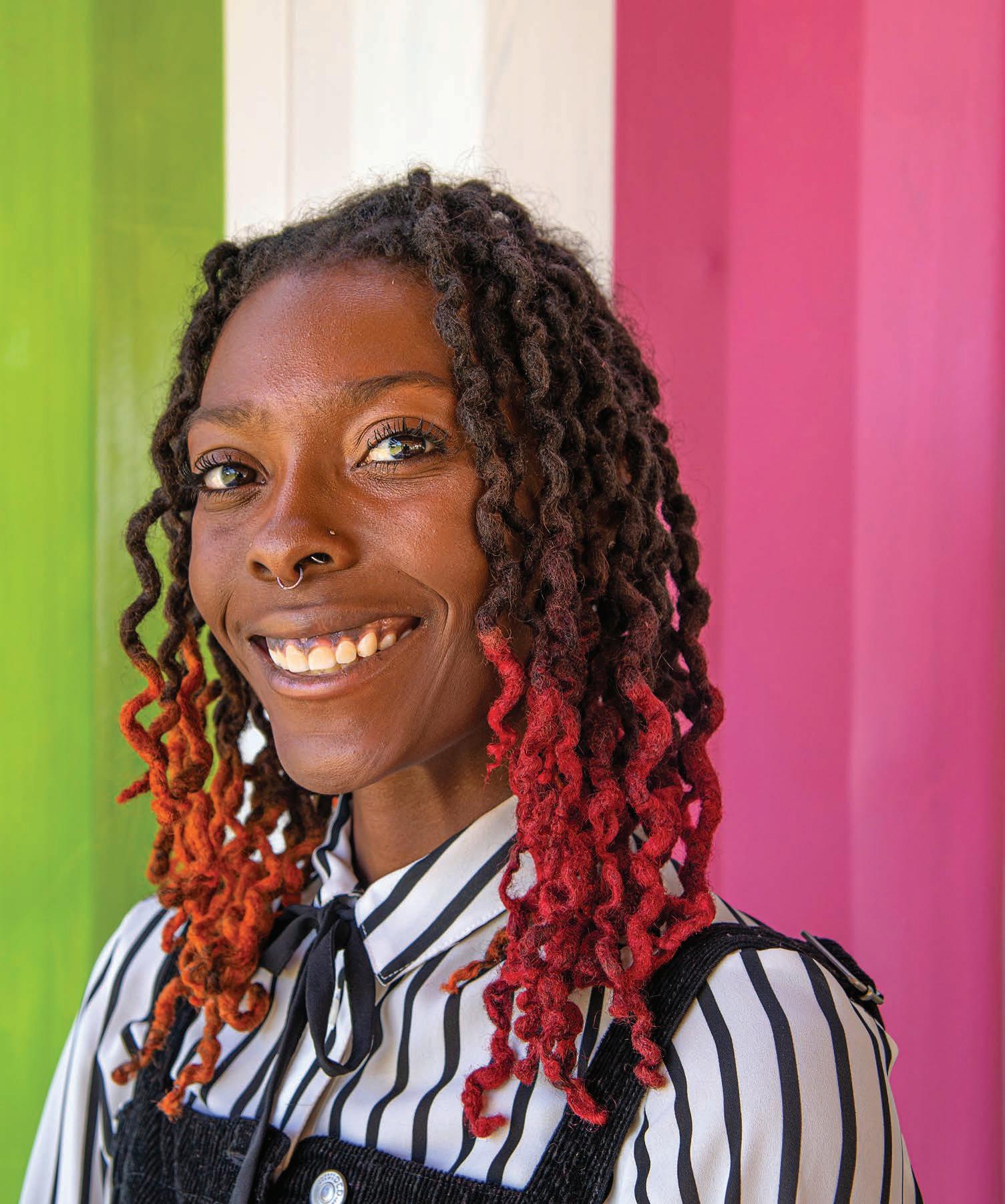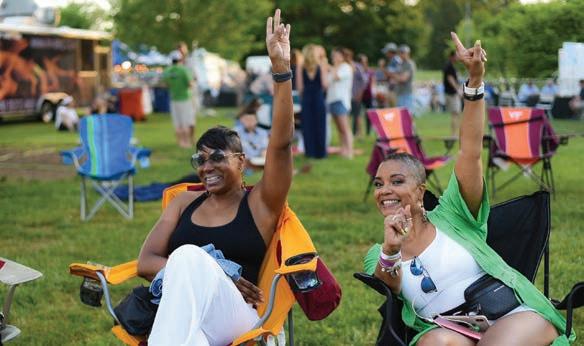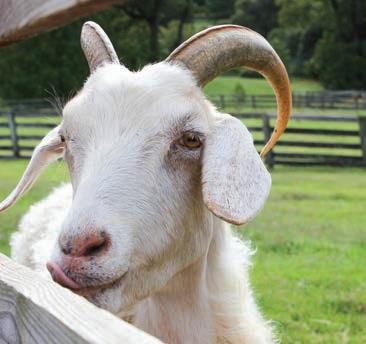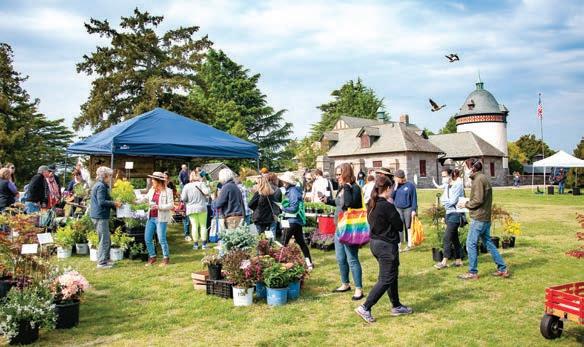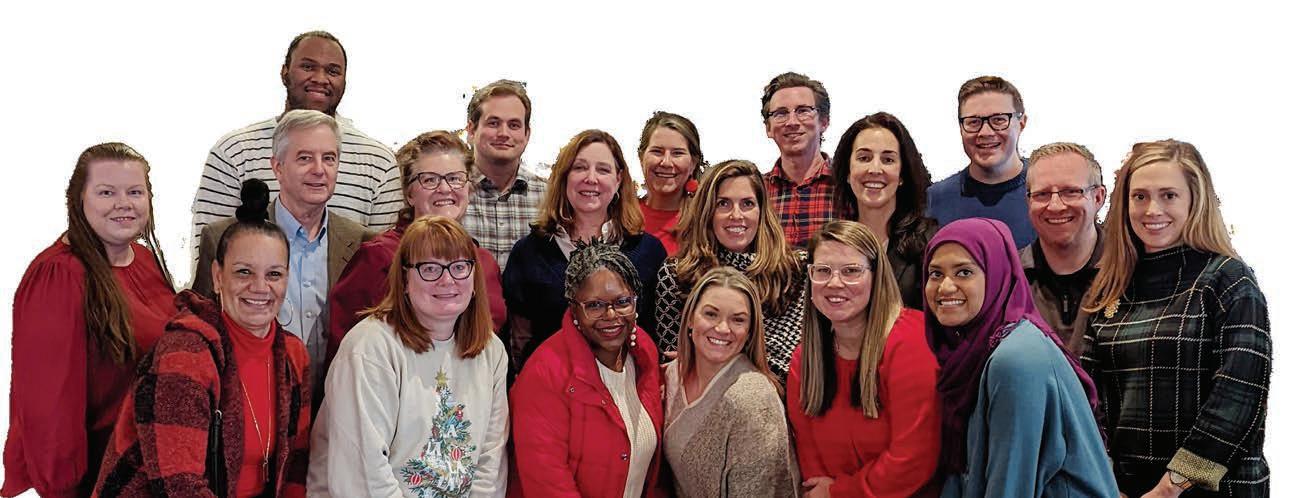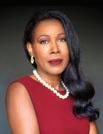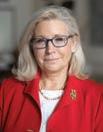under
PROFILES BY Brent Baldwin, Mary Scott Hardaway, Don Harrison, Davy Jones, Karen Newton and David Timberline
PHOTOS BY Scott Elmquist
Welcome to one of our most popular annual features. We’ve published a special print edition just in time for summer, a rarity that you now hold in your hands.
During a year when we've frequently been told about how rapidly evolving artificial intelligence is speeding our species — blindly, some argue —toward a more dangerous future (“Do you read me, HAL? Hello, HAL, do you read me?”), this is an issue dedicated to human beings working to help other human beings — and the planet. We salute them.
The majority of Class of ’23 winners were chosen from nominations submitted by the public in March, with a few more winners added based on past reporting. Nominees were evaluated for “their vision and leadership, innovation and achievements, and strategies for success” with emphasis placed on “community service, including the impact of their volunteer work, their commitment, and the diversity of their interests and involvement.”
Style Weekly is owned by VPM, but it was not involved with selecting winners.
Our next print issue will be the Fall Arts Preview in September. If you have story ideas or big events taking place that month through November, send them to editor@styleweekly.com. And to support one of the few remaining, locally owned journalism outlets, contact Ren Bell at rbell@ vpm.org for information about purchasing ads.
We’ll close with another reference to Stanley Kubrick’s classic sci-fi movie, “2001.” In particular, the lyrics from the 1892 song “Daisy Bell,” which the murderous HAL 9000 computer sings as its memory is being dismantled; a winking nod to the first computer to ever use speech synthesis to perform a song, the IBM 704 in 1961.
“Daisy, Daisy, give me your answer do/ I’m half crazy, all for the love of you/It won’t be a stylish marriage/I can’t afford a carriage/ But you’ll look sweet, upon the seat/ Of a bicycle built for two.”
Here’s to a future where we sing our own songs, ride our own tandem bikes, and make our own communities more human, not less.
—Senior Editor Brent Baldwin
Summer 2023 style weekly 4
2023
forty
Taylor Scott, 25 Founder, RVA Community Fridges

It started with too many tomatoes. Anyone who has ever grown them knows—when it’s time to pick your fruit, it’s time. “After graduating college, I had my own apartment and I figured I needed to cook for myself,” says VCU alum Taylor Scott. “I ended up getting a hydroponic farm stand in my apartment—it was taller than me! And I started growing tomatoes, but then I had too many,” she laughs.
Scott was determined to find a good use for her extra produce, especially since her whole goal was to create less waste. “A friend said I should put the tomatoes at my local community fridge, and I said, ‘You know what, great idea.’ But then I couldn’t find any.”
A New Orleans native, Scott was familiar with this community-based concept; how hard could it be to put up her own fridge? “I went to my personal Instagram, reaching out to the like, 300 people following me, asking ‘Who wants to help me do this?’”
The response surprised her. “A good number of people reached out,” says Scott. “One friend had a fridge, another artist friend said they’d paint the fridge.” That first pink fridge, which Scott and her cohorts put together two-and-ahalf years ago, still stands.
Today, Scott heads up a small network of community fridges full-time. There are currently 10 fridges (with accompanying pantries) placed around the city, with plans for more to be installed at businesses in the South Side and North Side. All the fridges have been donated, and Scott says they’re lucky enough to have backup fridges in a storage unit.
“The community has been so supportive,” says Scott. “I honestly didn’t know there were so many people out here doing the work until I started the fridges.”
The brightly painted fridges are constantly restocked but “never full,” says Scott. There are specific guidelines attached to each fridge outlining what continued on page 8
5 style weekly Summer 2023
should and should not be donated— prepared food needs a label, no raw meat except from local farms—but the main rule is: free food, for everyone.
“That is one of the biggest things that people appreciate about the fridge,” says Scott. “It’s not like a lot of our food banks where you must show ID or proof of residence. The fridges are free and accessible 24/7. Anyone can take whatever they need, as much as they need—there’s no policing.”
Like her hydroponic farm stand, RVA Community Fridges grew much faster than Scott ever could have anticipated. And she’s determined to keep nurturing it.
“We’re working on our nonprofit status right now,” says Scott. “Aside from putting up more fridges, we’re looking to get land for ourselves. We want a space where we can grow food and expand our educational outreach. We have awesome community partners and connections—if we had land, we’d have everything we need.” –M.S.H.
Abbey Philips, 36 Director of policy, Legal Aid Justice Center

After spending a decade as Jennifer McClellan’s chief of staff in the General Assembly, helping to pass more than 350 bills, Abbey Phillips was all too aware of how difficult it is to navigate the state’s labyrinthine political system.
“Some people can afford to hire lobbyists,” says the 36-year-old co-founder of the Advocacy Lab, who also served for six months helping to facilitate end-of-term pardons as Gov. Ralph Northam’s assistant secretary of the commonwealth. “Some people reach out to their legislator, but there’s a lot of people that are facing challenges and barriers on how to get into the system and navigate state resources to get their problems addressed.”
Advocacy Lab serves as a sort-of lobbyist for the people, a corrective resource that offers free and sliding scale services. “It’s not just the General Assembly,” she says. “If someone needs to apply for a pardon, or is trying to figure out about a state grant, we can help them navigate that. It’s kind of like what I was doing for Jenn [McClellan]: constituent services.”
Philips also co-founded Collec-
tive 365, a philanthropic group where members pay a membership fee to collect $10,000 a year that goes to special community grants. “We don’t just fund nonprofits, but activists, artists, businesses, and organizations investing in Black or brown communities.”
For more than a decade, Philips has also been a court appointed special advocate (CASA), earning the 2009-2010 Henrico CASA volunteer of the year award. “It’s a volunteer that
a judge appoints to custody or foster care cases,” she explains. “The job is to help uplift the voice and interest of the children in those cases. We see the child, visit the school, and get a holistic picture of what is happening in their lives.”
All of this is in addition to her fulltime work as director of policy at the Legal Aid Justice Center, which partners with communities and clients to fight for racial, social, and economic
justice. Somehow this amateur pianist also carves out time to catch live music; her spouse is professional saxophonist, John Lilley (Bio Ritmo, AfroZen All-Stars), whom she met at VCU while pursuing her master’s degree in social work administration, policy and planning. The couple love hanging out with their 6-year-old son Benjamin, and conducting runs at James River State Park’s Buttermilk and North Bank trails. –D.H.
Summer 2023 style weekly 6
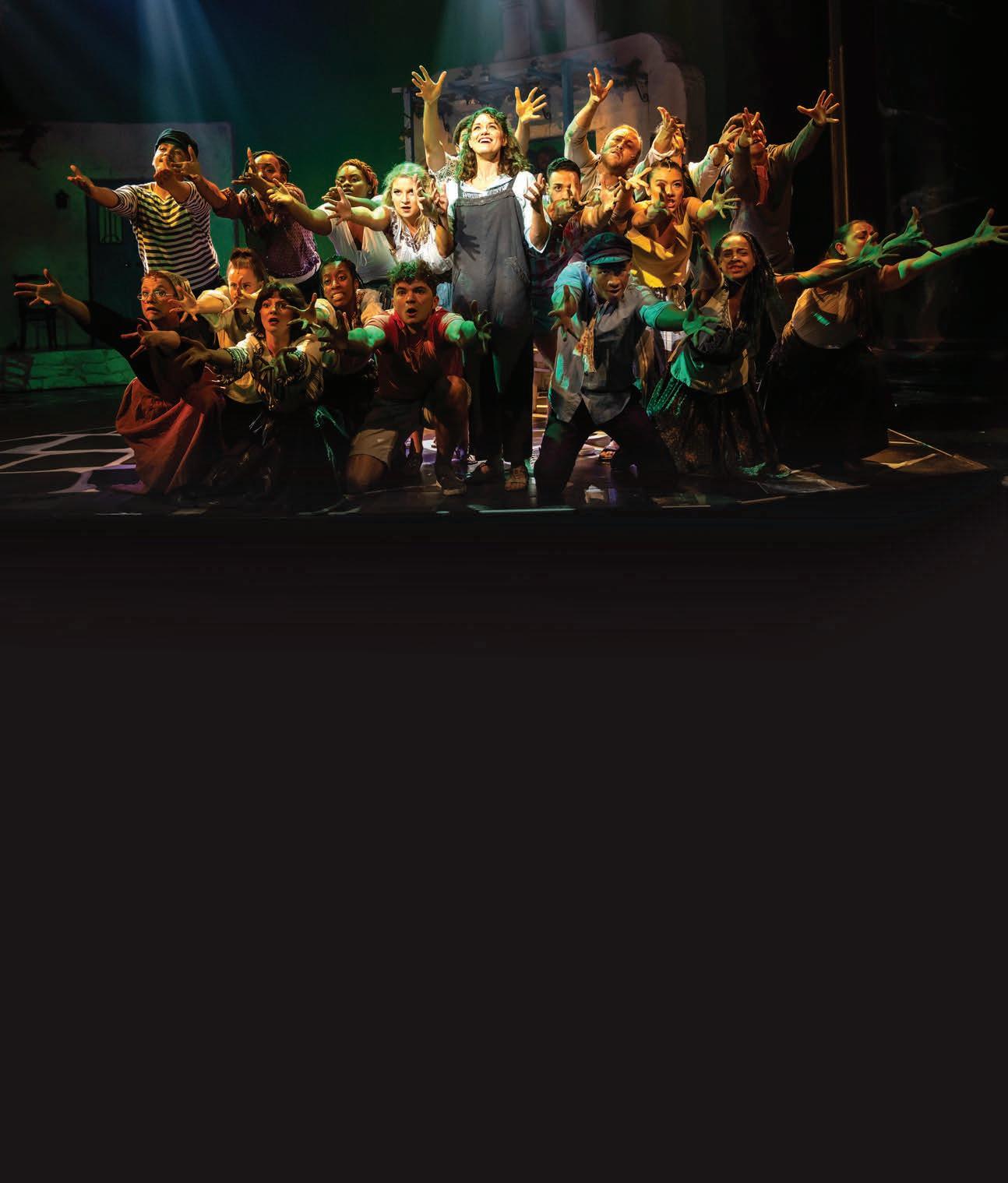
7 style weekly Summer 2023 Experience the magic of live theatre! SUBSCRIBE EARLY Get the best seats at the best prices. Save up to 25%. Free and easy exchanges 2023/24 SIGNATURE SEASON NOVEMBER THEATRE/DOWNTOWN POTUS: OR, BEHIND EVERY GREAT DUMBASS ARE SEVEN WOMEN TRYING TO KEEP HIM ALIVE SEP 1 - OCT 1 | By Selina Fillinger THE SILVER BELLES NOV 24 - DEC 31 | Book by Allyson Currin, Music by Matt Conner Lyrics by Stephen Gregory Smith SATCHMO AT THE WALDORF MAR 1 - APR 7 | By Terry Teachout 9 TO 5, THE MUSICAL JUN 21 - AUG 4 | Music & Lyrics by Dolly Parton Book by Patricia Resnick 2023/24 BARKSDALE SEASON HANOVER TAVERN MARTHA MITCHELL CALLING SEP 29 - OCT 29 | By Jodi Rothe KEN LUDWIG’S BASKERVILLE: A SHERLOCK HOLMES MYSTERY DEC 15 - JAN 21 | By Ken Ludwig ON AIR MAR 15 - APR 14 | Music & Lyrics by Matt Conner Book & Lyrics by Stephen Gregory Smith VIRGINIA REPERTORY THEATRE | 804-282-2620 | VIRGINIAREP.ORG 2023/24 CHILDREN’S SEASON VIRGINIA REP CENTER/JESSIE BOGESE THEATRE THE EMPEROR’S NEW CLOTHES OCT 20 - NOV 12 | By Hans Christian Andersen Adapted by Richard Giersch, Music by Jason Marks THE SANTA CLUES DEC 8 - 31 | By Pat Mullen CHASING GEORGE WASHINGTON: A WHITE HOUSE ADVENTURE FEB 9 - MAR 3 | By Karen Zacarías Music by Deborah Wicks LaPuma NAKED MOLE RAT GETS DRESSED: THE ROCK EXPERIENCE APR 12 - MAY 19 | Script & Lyrics by Mo Willems Music by Deborah Wicks LaPuma DRAGONS LOVE TACOS JUL 14 - AUG 4 | By Ernie Nolan
Jordan Brown, 35 Interim executive director, Visual Arts Center of Richmond
It’s hard to believe, but the nonprofit VisArts is 60 years old.
Offering a wide variety of art classes, residencies and exhibitions to the public, the organization serves nearly 8,000 people a year through classes and 45,000 people through exhibitions and events. Jordan Brown became interim director in January after having a transformative impact on the organization over the past 11 years.
Brown says that she has always loved art, having studied painting and printmaking at VCU before interning at Quirk and 1708 Gallery, where she began learning about nonprofits. But she found a longtime

home at VisArts, starting out as a part-timer at the front desk and working her way up. “I liked that it was a community space that was welcoming to everybody,” she says.
Under her direction, the education team has doubled the amount of classes VisArts offers to the public over the last 10 years, as well as growing its community programming by more than 30% in the last five years, she says. “I’m most proud that we started to really find ways to be a supportive environment with resources for artists at every level, classes for kids and adults,” she explains, adding that new artist residency programs have expanded opportunities for local artists and a studio access program now allows empty studios to be used when they aren’t filled for classes.
She also expanded the nonprofit’s work with military veterans and people with disabilities.
“We’ve done a lot of intentional and specific work to make our spaces welcoming to everybody and have greatly increased the diversity of our students and teachers,” she explains. “[Creating] residency programs that specifically prioritize BIPOC a rtists or artists from historically marginalized backgrounds.”
As far as the future goes for Brown at VisArts, she’ll only say there is a call underway for applications for a full-time director. But she explains that the nonprofit will need to grow to meet demand. Last year, they had 1,000 people waitlisted for classes and their summer camp sold out half its seats on the first day.
“We’re maxing out our space so we want to expand and grow,” Brown says. “But find a way to do it the right way by maintaining our mission and creative spirit.” –B.B.
Summer 2023 style weekly 8
Sanjur “Sandy” Brooks, 39 Director, Human Research Protection Program at VCU

Sanjur Brooks makes sure ethical guidelines are followed and continually studied and updated in all medical research conducted at Virginia Commonwealth University and its health system. “Our rule is ‘Do no harm,’” says Brooks, known as Sandy to friends and associates. “There is always a level of risk when you are a human subject — but we make sure that the risk is mitigated.”
With a staff of 18, Brooks oversees a human research portfolio of approximately 1,500 studies being conducted at VCU. She also helps to preside over two institutional review board panels. “When it comes to conducting any kind of research that involves a human subject, it must be reviewed and approved by an institutional review board, either in-house or a private one.”
Her department also conducts clinical trials and social behavioral research. This doesn’t always make her popular in certain research circles, she admits.
“Physicians and researchers don’t appreciate the role of the institutional review boards, they see them as more of an administrative widget that they need to get through to get their study approved,” she explains. “But we are the component that helps to protect the human subjects. The only thing they see is their idea and how it will benefit people in the future. But we are addressing the immediate harm to individuals right here and now.”
During her off time, Brooks mentors young professionals, especially those considering ethics as a career. “I help to prepare them on how to take their experience and bring it into a real job field. One thing about the field of ethics is that people think of it as a very obscure thing, as if you can’t get a job in it ... but the skills you develop are transferable.” She’s found mentees in a variety of places, not just at VCU. “One of them I met in a grocery store,” she says. “Some from my church ... I help them with interview techniques, their resumes, and assist them in finding jobs that have career ladders in them.”
With her husband, Arron James, the Cleveland native moved to Richmond a year and a half ago from Washington D.C., where she served as chief of ethics policy within the U.S. Department of Veteran Affairs. She was formerly the director of research programs and clinical ethics advisor at Walter Reed National Military Medical Center, where she managed the research portfolio for the Department of Defense. She still holds an adjunct seat in the Department of Clinical Research and Leadership at George Washington University’s School of Medicine and Health Sciences.
“It’s quiet and slower-paced here, which I appreciate,” she says of her new home, which has already inspired her to learn to roller skate and ride a bike. “In DC, you are up at 4 in the morning just so you can get to work by 7:30. There’s a better quality of life here, and a very supportive environment.”–D.H.
Will Egen, 35 Senior policy analyst, Virginia Commission on Youth
Will Egen’s dayjob is to help guide six House of Delegates Members, three state senators, and three citizens who sit on an important 12-person body that steers Virginia’s legislative policies toward young people. Egen leads studies on youth-related topics, and his research has helped to inform legislation on issues ranging from mental health to juvenile justice.
“Right now, it’s foster care,” says the 34-year-old attorney. “This is something that really speaks to families and parents, so I’m happy that we’re taking it on.” Thanks in part to his advocacy, the commission has already adopted 19 recommendations to improve Virginia’s foster care system, and the assembly has passed several of these initiatives, including the formation of a state Kinship Guardianship Assistance Program.
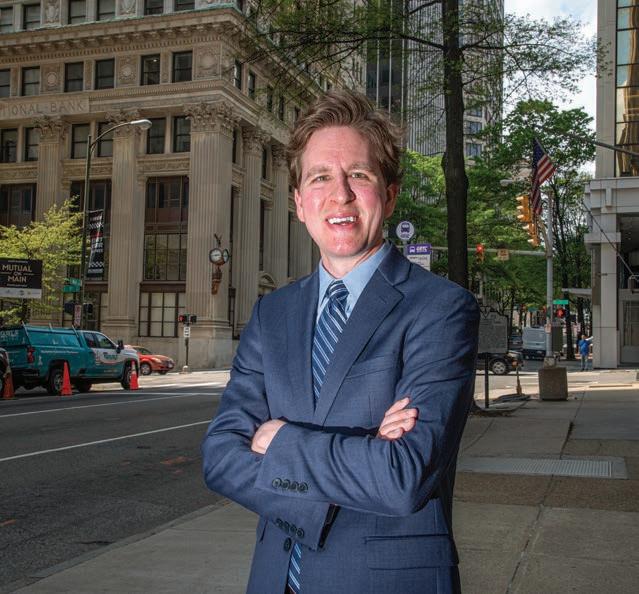
The analyst job, which he assumed in 2014, requires research on a wide range of topics related to young people. “We did a large study on juvenile justice and one related to special education, particularly as kids advance from high school to adulthood. The topics change year to year but they are all related to youth policy.”
Egen has also been heavily involved in the Richmond Sister Cities Commission. In May, he will be representing our city as part of a delegation traveling to Olsztyn, Poland, a designated Sister City of Richmond. “When people came from the other cities to Richmond, it was truly inspiring,” he says. “So I’m excited to go. It’s building bridges in different ways.”
He will also become chairman of the Richmond Bar Association’s Young Lawyers division in June. “We boast over 400 members,” he says. “What’s great is all of the service projects we do, assisting the people in the community who need legal help but don’t know where to start, organizing trash pickups at cemeteries. It’s a way of giving back.”
Another way has been as a committee resource volunteer in the YMCA’s Model General Assembly, where he assists high school students in presenting mock bills. For his work, he was presented with a service to youth award by Governor Ralph Northam in 2019. A “huge fan” of local journalism, he also served as an inaugural board member of the Henrico Citizen advisory board last year.
Will and his wife, Ellen met at the University of Mississippi School of Law. They have two girls, Wendy, 3, and infant Dana. “I love the job I do, helping young people, and I love raising these two young women. I see the eyes of the world through my daughters’ eyes.” –D.H.
9 style weekly Summer 2023
Jennifer Ligon, 39 Partner, Williams Mullen
At the law firm of Williams Mullen, Jennifer Ligon helps to advise hospitals and physicians on state and federal health care law. “I do a lot of certificate of public need work,” says the 39-year-old attorney. “It’s a state law that requires facilities to get permission before they add hospital rooms or get operating rooms. I serve as kind of a strategic partner to businesses to help them navigate the health care industry. From a state level and a federal level, it’s constantly changing.”
For some time, she’s also been helping young lawyers in Richmond navigate the ethical and technical

corners of the legal profession. After she received her juris doctor degree from the University of Virginia School of Law, where she was on the editorial board of the Virginia Law Review and served as a Dillard Fellow, Ligon started her mentorship of young law students through the Metropolitan Richmond Women’s Bar Association. It enabled her to partner with University of Richmond law students, which she did for several years. “And now I work with Virginia Bar Association’s Young Lawyers division, helping them find their footing in the legal field.” This year, she was given the Sandra P. Thompson Award, based on her lifetime commitment to the Young Lawyer’s group.
There is a whole host of energized, eager, well-intentioned young lawyers entering the profession,
says Ligon. “We’ve always had a plethora of folks who get into it for the right reasons and make the best of their law degree to give back to their communities, whether it’s pro bono or through their employers or volunteer service.”
Ligon has a screenshot on her computer that shows the eight dimensions of wellness. It’s important to her. “We have to give ourselves grace,” she says. “And we have to lead with kindness, compassion and understanding. None of us have walked a mile in anyone else’s shoes so we should all be allies.”
An avid Syracuse University fan – it’s where she got her undergraduate degree – she enjoys reading nonfiction and spending time with her husband Chad and two young girls, Coralie and Avalyn. –D.H.
Summer 2023 style weekly 10
C. Paul Brockwell Jr, 38 Associate director of communications, MCV Foundation
C. Paul Brockwell Jr. says he doesn’t have the time to do all the many things he does, but that doesn’t stop him. “I’m just like Ado Annie in ‘Oklahoma,’” he jokes. “I can’t say no.”
In his day job as associate director of communications at the MCV Foundation, Brockwell manages the production of three informational, philanthropic-focused publications that it publishes, and writes longform features about the work being done by doctors and researchers in the medical system.

Elsewhere, you’ll find him volunteering his time on nonprofit boards, the most prominent being his role as chairman of the Library of Virginia’s board,
leading the state library’s 200th anniversary this year. “We’re working on a very special project related to this capstone year,” he says, teasingly. A former member of VPM Media’s Community advisory board, he also served as founding chair of VPM’s Amplify, an initiative to engage younger viewers and listeners in supporting public media.
Brockwell, who got his bachelor’s degree at William & Mary and his master of arts at Syracuse, says that he’s always been focused on including people that are often not seen at the table. When he worked at the University of Richmond as digital engagement specialist, editing their alumni magazine, he helped to reconfigure UR’s staff advisory council so “a wider range of voices” could be heard. He also chairs the William & Mary student engagement and leadership advisory board, which works w ith students and administrators from across the
region. “I’m just a nerd who likes getting involved with things and doing what I can to make the world just slightly better.”
Brockwell lives with his husband, Kevin Corn, a pilot in the private aviation field, and is a self-professed TV addict. “I would probably be teaching media studies if I wasn’t doing this,” he laughs. His free time, what little he has, is spent working as a moderator at Grace Baptist Church, Richmond’s third oldest Baptist Church. “It might sound strange coming from someone who is gay, but I’m very involved in the church.” He also serves as secretary to the board at the Grace-affiliated Sophia Theological Seminary in Dinwiddie Country. “Sophia is an interesting project,” he says. “We’re trying to co-locate a seminary with a working farm. For students, it would be debt-free and they would work the farm.” –D.H.
11 style weekly Summer 2023
Alexsis Rodgers, 31 National organizing director, National Domestic Workers Alliance
If things had gone a little differently, Alexsis Rodgers would be Richmond’s mayor right now.
Most know the native Richmonder as the upstart campaigner who put a scare into a few established politicians in a tight 2020 city election, galvanizing the support of young people and progressives and raising an impressive amount of campaign dollars. “People call me a rabble rouser and anti-establishment,” she says. “But I also bring the experience of someone who actually knows the process and rules and I use that to make the [Democratic] party better.”
Rodgers, who is gay, says that her career has been focused on “building power for women of color.” At the National Domestic Workers Alliance, the policy and advocacy home for 2 million women domestic workers, she manages an organizing team that successfully advocated for Virginia’s first ever domestic workers bill of rights.
As a leader in the Democratic party, Rodgers served as policy director for then-Lt. Gov. Ralph Northam and as the former president of the Virginia Young Democrats. A former communications director for Virginia Planned Parenthood, she says that she’s focused on making Virginia Democrats more reflective of the community. During her stint with Virginia Young Democrats, she was instrumental in changing the rules so that undocumented people and individuals identifying as trans could participate. “There were actually policies in place that prevented people from participating and getting involved. I mean, c’mon, we’re Democrats.”
She’s also always been a mentor to other young people, especially young women, whether it’s in nonprofit or government leadership. “People did that for me. They recognized something in me and pulled me aside and invested one-on-one time to help me in professional development.” She counsels college students, young professionals, and those starting work in government, “not always in partisan politics.” It’s an extension of the work she did while serving as communications director at Virginia 21, a college advocacy organization. “I think the best way I can use my volunteer time is in peer-to-peer support, making sure people feel that they have support from someone else who’s been navigating the same issues.”
For fun and relaxation, Rodgers says she loves to explore her home state. “I love to go to small towns around Virginia, like Bedford or on the Eastern Shore, and enjoy the beautiful nature. I love to kayak, either on the James or other rivers or lakes. And anyone who follows me on Instagram knows I love to eat, and there’s not really a restaurant in Richmond that I haven’t tried.” She declines to state her favorite eatery on the record. She’s a politician after all.
“I’ll just get myself in trouble,” she laughs.
Rodgers launched an unsuccessful bid earlier this year to claim now-Congresswoman Jennifer McClellan’s vacated Virginia Senate seat. As the chair of Virginia’s 4th Congressional District Democratic Committee, she managed the Democratic firehouse primary that helped to elect McClellan. There’s that eternal question: Does she plan on running for office again?
“I don’t know what my timeline will look like,” she says. “I’m going to keep serving and keep leading in the ways I feel are most effective to help other women serve as well.” –D.H.
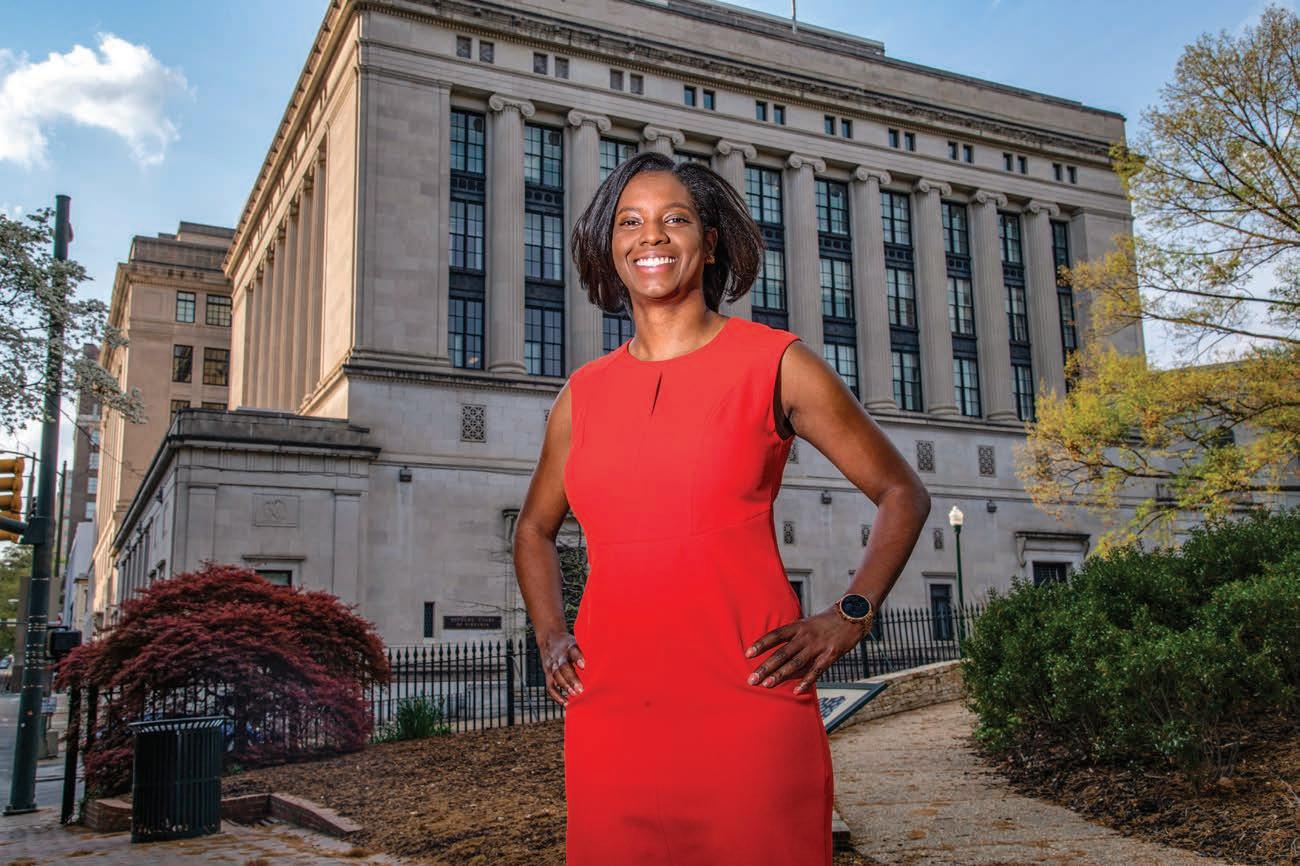
Summer 2023 style weekly 12
Anthony Grimes, 38 Executive director, Virginia Association of Recovery Residences
Being in long-term recovery from substance use disorders, Anthony Grimes is uniquely qualified for his position as executive director of VARR.

A certified peer recovery specialist, Grimes has years of direct experience working with people in recovery. In 2016, he launched his first certified recovery residence and in 2017, co-founded a Richmond recovery residence foundation called Willing Addicts Recovering (WAR) with 21 beds. In seven years, it has grown to house 103 certified beds, reflecting the growing need for housing. “People once thought substance use disorder was a moral failing,” Grimes says. “Science has since proven that addiction, an official AMA [American Medical Association] designation, is a disease of the brain.”
By 2019, Grimes was hired as the first full-time, paid executive director of VARR, the state affiliate of the National Alliance for Recovery Residences (NARR). The organization certifies recovery residences throughout Virginia that meet their own national standards. During Grimes’ tenure, Virginia’s group has more than doubled the number of certified recovery residence operators and bed capacity. As of early 2023, Virginia has 1,170 certified beds. “There’s a misconception about needs because everyone looks for solutions on how to stop deaths,” Grimes says. “It’s important to remember that the best tool to fight it is to invest in recovery.”
Using additional funding from the American Rescue Plan Act, VARR was able to address the disparity regarding who was being served by recovery residence services. Small rural counties such as Russell and Dickinson counties are now getting much needed beds. In 2020, 80% of recovery beds went to white peo-
ple. ‘We had to ask, why are we not serving minority populations in recovery?” Grimes recalls. “For minority populations, the biggest barrier to recovery was financial. With the ARPA [American Rescue Plan Act] funding, the populations we were able to serve are 54% Caucasian and 46% non-Caucasian.”
Just this year, Grimes co-authored a research paper with leading addiction recovery researcher Dr. David Best and was asked to serve on the NARR board of directors.
“Recovery residences give a mother back her child, a friend back their friend, and a brother or sister back their sibling,” he says. “But the impact on those individuals’ lives has the greatest impact on our community at large.” –K.N.
Bianca Myrick, 34 Executive director and founder, Pretty Purposed
When she was working as a fifth and sixth grade teacher in Chesterfield County and Petersburg schools, Bianca Myrick began noticing the special educational and emotional needs that her young female students had. She began her mentorship organization, Pretty Purposed, with seven girls in 2015. It now serves 175 in twelve area schools from Richmond to Petersburg and into Dinwiddie and Sussex counties.
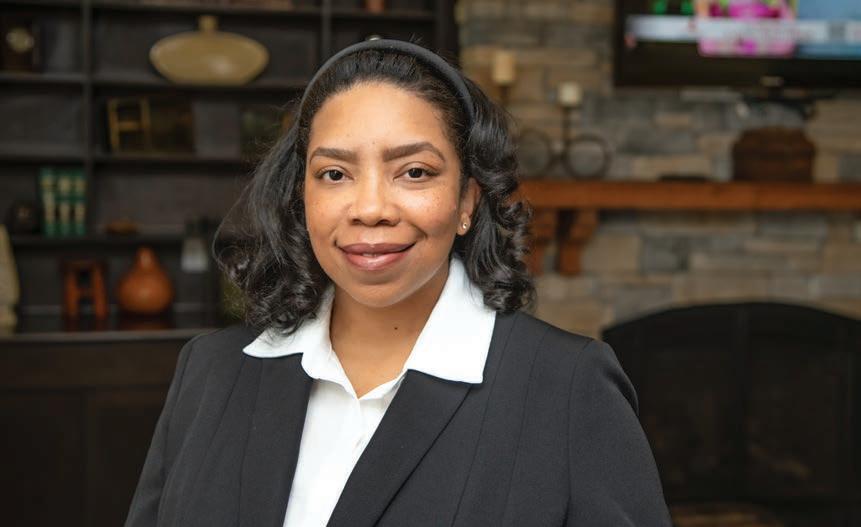
Myrick, is also co-founder and vice president of Collective 365, a nonprofit, membership-based group that has helped to award more than $35,000 in grants through trust-based philanthropy to groups like Iron Bridge Academy, the United Black Birth Collective and Girls Like Me.
“We provide grants each year to individuals and businesses, as well as nonprofits,” the Petersburg resident says. “When you think about the nonprofit space or funding space, it’s definitely tied to social capital. We often have people who do great work but they may not be able to access traditional funding because, say, they don’t have a nonprofit structure, or maybe they don’t have the right visibility. I’m really passionate about de-colonizing the philanthropy sector.”
Myrick, who got her bachelor’s degree at Virginia State University and her master’s in public administration from VCU, also works as the executive director of the Virginia Association for Environmental Education, a grassroots organization devoted to eco-justice and equitable outdoor access. She also puts in time as an adjunct professor in the teaching and learning department at alma mater VSU, where she instructs students on the finer points of nonprofit leadership. “The students are required to have an authentic experience and work on projects for different community based organizations,” she says. –D.H.
13 style weekly Summer 2023
Lyons Sanchezconcha, 29 Graduation coach, Huguenot High School
As the graduation coach at Huguenot High School, Lyons Sanchezconcha helps to retain students with poor grades and erratic attendance, and convince dropouts to return. “I try to help all students access college but I prioritize racially underrepresented students, first-generation graduates, and those with low socioeconomic backgrounds,” he says, adding a chuckle. “I mean, that’s me: Check, check, check.”
Sanchezconcha was born in Peru and moved to Sterling, Virginia with his parents and six brothers and sisters – including twin brother Christopher –
in 1999. “I was first in the family to get an associate degree and then a bachelor’s and now I’m getting a master’s in education this year from the University of Richmond.” He was recently accepted into a doctoral program at William & Mary and hopes to “give my family the pride of having ‘doctor’ in front of the family name.”
He came to Huguenot as a college advisor through an AmeriCorp program. He ended up loving the school, and the city, so much that he stayed and expanded his youth outreach at the Sacred Heart Center.
On top of his direct work with young people, Sanchezconcha serves on several nonprofit boards, including his role as the president of the board of the

Virginia College Access Network. He also chairs the Virginia Latino Advisory Board, and sits on the board of the Virginia Latino Higher Education Network, and has volunteered his time to task forces and boards for the Virginia Department of Education, the City of Richmond, Richmond Public Schools, and more. “On some of these boards, Latino representation is important,” he says. “It’s often a perspective that’s not considered at the decision making table.”
Because of his work in the community, and his friendly demeanor, the 29-year-old educator has been asked many times about seeking political office. “It’s something I’ve considered,” he says. “Possibly down the road. But right now, I’m exactly where I’m supposed to be.” –D.H.
Summer 2023 style weekly 14
Megan Schultz, 38
Chief operating officer, Sports Backers
Megan Schultz played on the women’s basketball team at Randolph-Macon College from 2002 to 2006. After she graduated, wondering how she was going to remain active and stay in shape, she spotted a commercial for the Sports Backers 8k race. Despite never having done a running event, she immediately signed up.
While attending the Center for Sports Leadership at VCU for her master’s in 2007, she was offered an internship from Sports Backers with the youth basketball tournament that accompanied the annual
Colonial Athletic Association championship. When the internship ended, Schultz was asked to stay on part-time. “Sports provides life lessons and skills that are applicable beyond the court or field,” she says. “All my best relationships came with sports.”
Beginning as event manager, she moved up to director of events and currently oversees Sports Backers’ full organizational portfolio as COO. Along the way, she’s managed almost every event Sports Backers puts on, including Dominion Riverrock and Allianz Partners Richmond Marathon. “Riverrock showcases and celebrates Richmond’s active outdoor scene,” Schultz says. “It’s both an introduction and a reminder of just how special our outdoor amenities are. Riverrock helped put us on the map for that.”

Known for her ability to rally staff and volunteers and get them excited about an event, Schultz thrives on getting people motivated about daily tasks. The day after the Richmond Marathon, registration for the next year’s event begins. “What’s so special about the marathon is that it allows people to set goals and achieve them,” she says. “The distance is irrelevant because for many, they’re achieving something they thought they couldn’t do.”
She remains grateful that Sports Backers had an internship around basketball to initially pique her interest. “I’m a runner, I chase after my kids in the park, and we do family bike rides,” she says. “But when I’m feeling spunky, I go to the YMCA and play a little pickup basketball.” –K.N.
15 style weekly Summer 2023
Rachel Garmon-Williams, 33 Artistic director, CSz Richmond Theater
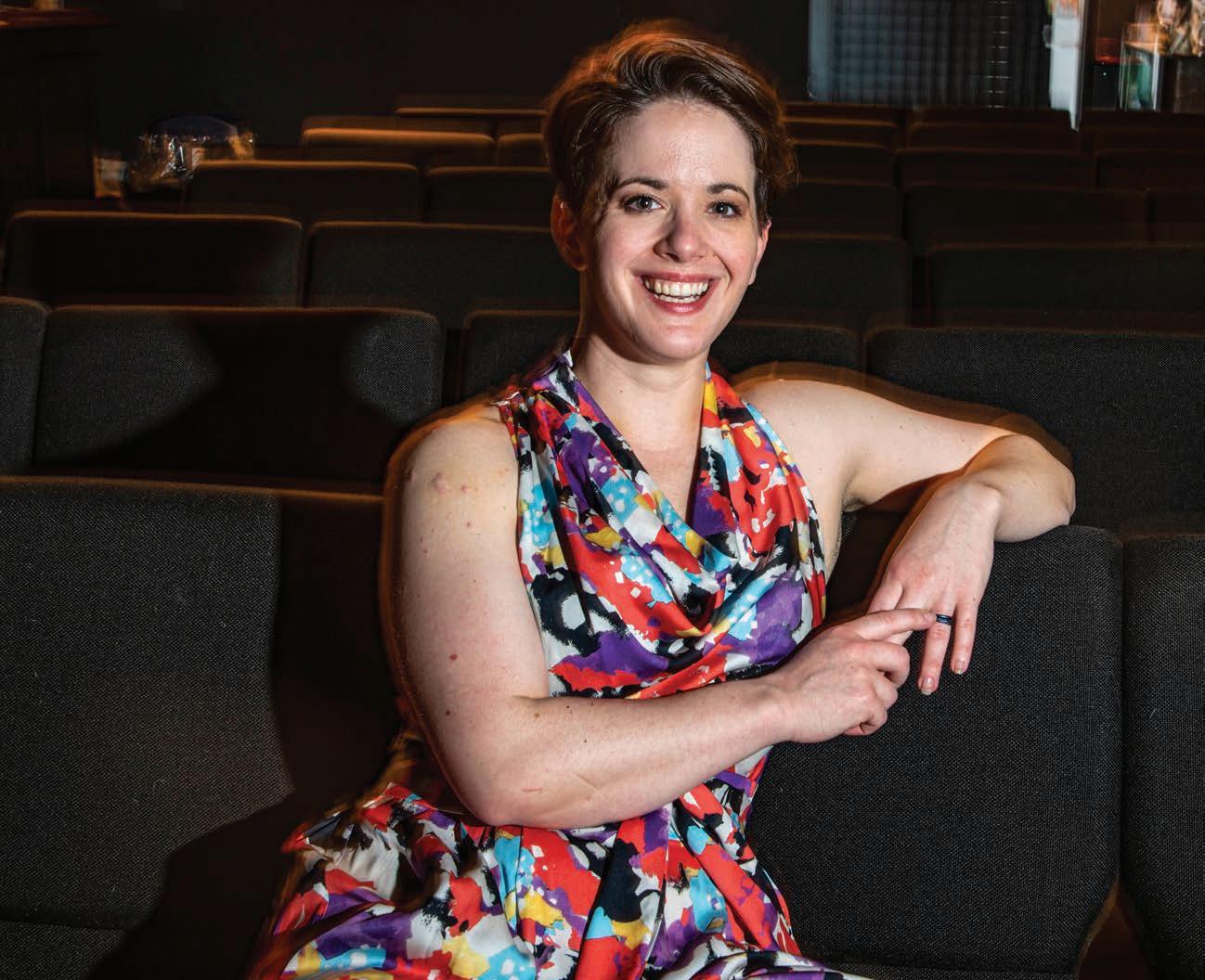
Leave it to Richmond to be the first place in the country to create sensory-friendly improv performances. Rachel Garmon-Williams launched the performances in 2017 as part of an effort to find new ways to connect with audiences.
“I wanted to create a space that would allow for enjoyment in different ways for children and adults with sensory-input disorders, autism, and other developmental or cognitive disabilities,” they explain, adding that families and caregivers are welcome. “That space didn’t exist in the improv world before.”
The Saturday afternoon performances have a low-cost ticket price, and the entire environment is geared to be sensory-friendly. There’s no expectation that the audience will remain quiet during the performance or even stay in their seats, so a “quiet area” is available with sensory-friendly toys for those who need a break from the performance. “We let people in early so they can get settled,” they explain. “The lights are dimmer and the volume of our speakers lower. Everyone
needs a space to laugh.”
Post-pandemic, Garmon-Williams began looking for more ways to be inclusive and address the changes in performers and audiences: “The past year has been one of leaning into grace and empathy and growth in the theater and myself. It’s been about resetting and building from that instead of trying to do what we did before. The pandemic did a number on us all in many ways.”
One such adjustment is a new pre-class ritual of allowing time for attendees to talk before class starts, an acknowledgment that people are more inclined to seek connections now. They’ve also seen a big shift in the improv community with more intentionality in diversification. “Improv hasn’t always been a welcoming space for a lot of people,” they say. “Whether it’s how our space welcomes those in wheelchairs or people on the autism spectrum, I wanted to see how we could change that.”
Already, sensory-friendly improv performances have expanded to Chicago and are currently being set up in Houston and Portland. “I love being able to create a space for people to come and laugh,” Garmon-Williams says. “It’s all about finding new ways to connect.” –K.N.
Summer 2023 style weekly 16
Douglas Powell a.k.a. Roscoe Burnems, 36 Founder/CEO, the Writer’s Den
Douglas Powell admits to his split personality. “Artistically, I’m Roscoe Burnems,” says the celebrated poet. It was a name that stuck in his earliest days of poetry slams and open mics, he adds. “I thought it sounded good to have this whole other moniker, this cool stage name. I don’t know if I feel that way at 36, but I’ve been using it so long that it’s like I’ll be Roscoe Burnems forever.”
Powell discovered his love for poetry at Henrico High, where an 11th grade teacher encouraged him to find his voice through verse. “It led me to finding a community of writers to share poetry and writing,” he says. That community was fueled by the long-running Tuesday Verses open-mic series, where he honed his art. Since 2009, Powell
has ranked highly in national tournaments multiple times, and, performing with the DC Beltway team, was named the National Poetry Slam champion in 2014.
He started Writer’s Den the same year, a team of scribes that participates in competitions, organizes area open mics, and offers writing workshops for kids and adults. “We’ve grown into a full art collective of approximately 10 people ... visual artists, singers, comedians, bloggers, songwriters.”

The Den, which hosts a monthly slam every first Sunday at Addis restaurant in Shockoe Bottom, partners with Richmond Public Schools to sponsor a youth poetry tournament in April at the Visual Arts Center. In October, will host the national Food For Thought event at the Virginia Museum of Fine Arts, bringing in international poets for a series of performances and workshops. Most recently, he and his spoken word collaborators were seen in a TV pilot and a series of digital shorts, “Verses,” for VPM
[Disclosure: VPM owns Style Weekly].
A proud father of three, Powell was appointed Richmond’s inaugural poet laureate in 2021 by Mayor Levar Stoney, who told “Roscoe” in a video tribute: “You’ve stepped into uncharted territory and created a safe space for poets and creatives in our city, from creating slam poetry fests at RPS and participating in an RVA Youth Ted Talk to leading the VCU poetry slam team to be ranked #3 in the world.”
“It was an honor because there’s so many talented writers in the city,” Powell says of his two-year tenure as the first poet laureate. “I dedicated my time to arts and education, and we were able to accomplish all the things I set out to do, including If These Walls Could Talk, in partnership with the Mending Walls mural project. We added a poetry component to that. We selected 11 murals and myself and ten other poets wrote poems to give the art a voice. It’s a unique perspective, interacting with the art in a different way.” –D.H.
17 style weekly Summer 2023
Stephen Davenport, 36
Assistant vice president, Social and Economic Development, Division of Community Engagement (VCU) and administrative director, Office of the President (VCU)
Leaders grab the attention but real power often lies with the people controlling the purse strings. Stephen Davenport leveraged the role of budget director in the President’s Office at VCU to help create groundbreaking and influential programs, including the Presidential Student Ambassadors (PSA) and the initiative that became the Division for Inclusive Excellence.
“It’s one of those things that I feel like administrators get to do that not a lot of people know about,” says Davenport. “Somebody told me a while ago that you can tell an organization’s heart by their budget. Being in this kind of role helps me to do just that, to say, ‘this is what we say we are, these are the things we want to move forward, so we need to be able to fund it.’”
Growing up in Chesterfield, he was originally skeptical about the academic
world. But after enrolling at VCU, he got a job as a student worker in the president’s office, leading to a series of exciting opportunities. Once he was in a position to do so, helping to start the PSA was his way to give back. “I wanted to recreate the experience I had for other students so that they could benefit from it,” Davenport says.
The administrator also gives back through service on the boards of directors of Leadership Metro Richmond and the Elegba Folklore Society.
Interested in community engagement since his days as a student, Davenport has played a key administrative role in the East Marshall Street Well Project that is managing the internment and memorialization of the remains of individuals, primarily of African descent, that had been disrespectfully discarded at MCV in the 19th century.
He recently assumed an additional role as assistant vice president, social and economic development, with plans to bolster the positive impact the institution has on Richmond. “I just feel like it’s really important, if you’re gonna be here on this planet, to use your talents and gifts to help other people,” he says. “So I really try to do that.” – D.T.
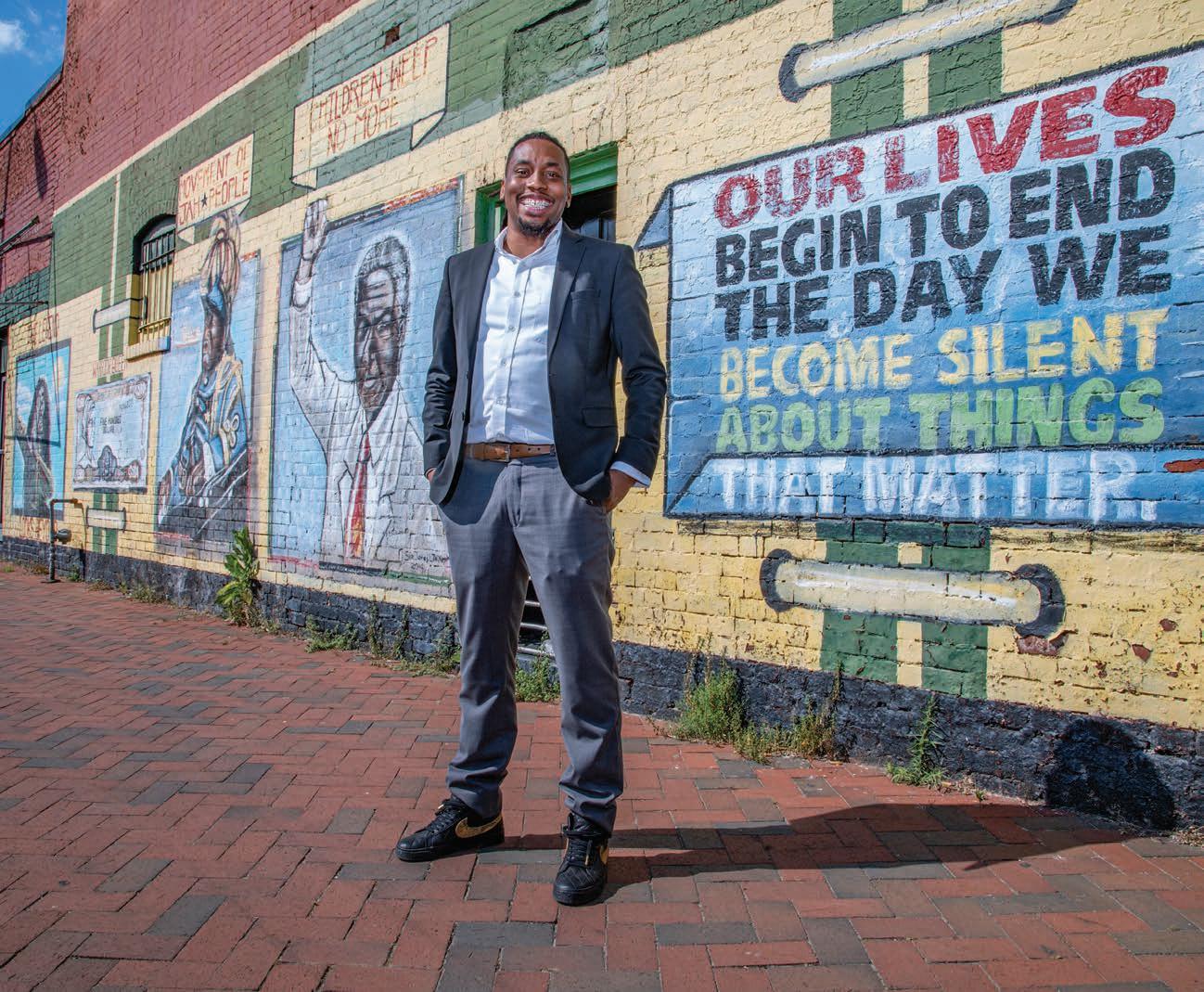
Summer 2023 style weekly 18
Cindy Moussavou, 38 Program director, Housing Families First

Everyone needs a place to call home, but not everyone’s vision of what home looks like is the same.
As program director of Housing Families First, Cindy Moussavou works with a team of housing counselors to address family homelessness on an individual basis. “We’re not telling people that there’s one vision of what you should have because we want people to dream for themselves,” she explains. “Instead, we ask families experiencing homelessness what their vision is and then work with them to see how we can get them there.”
Hilliard House Shelter provides short-term, temporary shelter for up to 40 children and adults who are on their way to a permanent home but need a safe and supportive stopover to regain control of their lives and plan their path to housing stability. Building Neighbors is a rapid re-housing program that helps families move into permanent housing as quickly as possible, then provides supportive services to help them sustain it.
The third leg of the Housing Families First stool is a program Moussavou cre-
ated called Bringing Families Home. The program partners with Richmond Public Schools’ Center for Families in Transition to provide more than 300 students and their families facing homelessness each year with housing counseling and the financial assistance needed to move into permanent homes. “I used to work in shelters, and it became clear that if these families had been given housing counseling and a little financial assistance, their homelessness could have been prevented,” she says.
She is understandably proud of creating the program, which is seen as a national model for bridging the divide between the educational system and the homeless services community. “By reaching these families through the students, we’re addressing the housing and education connection,” she says. “Children are able to attend school more regularly when they have a stable home.”
Ask Moussavou how she chose her career and she’ll say it chose her.
“I’m driven by the idea that we’re all meant to be neighbors, so I bought a house three miles from here because I wanted to live and work where I serve,” she says. “Because home is where the heart is and your heart drives the rest of you. If a family doesn’t have a home, how does that affect them? Every family deserves a home.” –K.N.
19 style weekly Summer 2023
Melissa Lesh, 32 Trevor Beck Frost, 37 Documentary filmmakers
It was one of the best local arts stories of the year. Two Richmond-based filmmakers, Melissa Lesh and Trevor Beck Frost, found huge success with their first feature-length documentary, “Wildcat,” which sold to Amazon Studios for nearly $20 million a nd was seen by millions of viewers around the world on the streaming giant.
The film explores the healing power of nature in the Peruvian Amazon and, in particular, how it helped one former British soldier dealing with PTSD. After debuting at the Telluride Film Festival, the movie arrived this year in theaters and streaming, where it shot to the number one, most-viewed.

Lesh and Frost are also a couple, having met years earlier while kayaking on the James River. Luckily for us, the pair of conservationists reinvested some of their money into buying a former law office on First Street in Monroe Ward and turning it into a production studio, 7 South Studios, that will become a hub for environmental documentary filmmaking. They hope to have it up and r unning before the end of this year. Frost’s production company is called Unbound Films and Lesh’s production company is Emerging Earth Films. We weren’t able to photograph the couple together for this issue because Lesh was still in India, working on their next documentary. “It’s not that we hate each other, it’s that we’re hardly in the same place,” Lesh says, laughing. Their next film is similar to “Wildcat” in that it’s a human/animal story, she says, but it takes places in South India. “You start the process looking to explore one thing and it ends up shifting,” she says. “It’s a little hard to say what it is at this early point.”
Lesh was actually born in Mumbai, India, and split time growing up there with her mother, a cellist studying Indian classical music, and Madison, Wisconsin, or what she calls “the two most opposite places on Earth.” She grew up loving wildlife and fondly remembers living on a college campus near a national forest in India, where leopards would come through at night and monkeys were outside her win-
dows. After her mother remarried and moved to Virginia, she attended VCU for painting and printmaking and began interning over the summers with the U.S. Fish and Wildlife Service in Maine, where she discovered filmmaking. She taught herself how to edit on YouTube while living in a remote cabin in Northern Maine, she says.
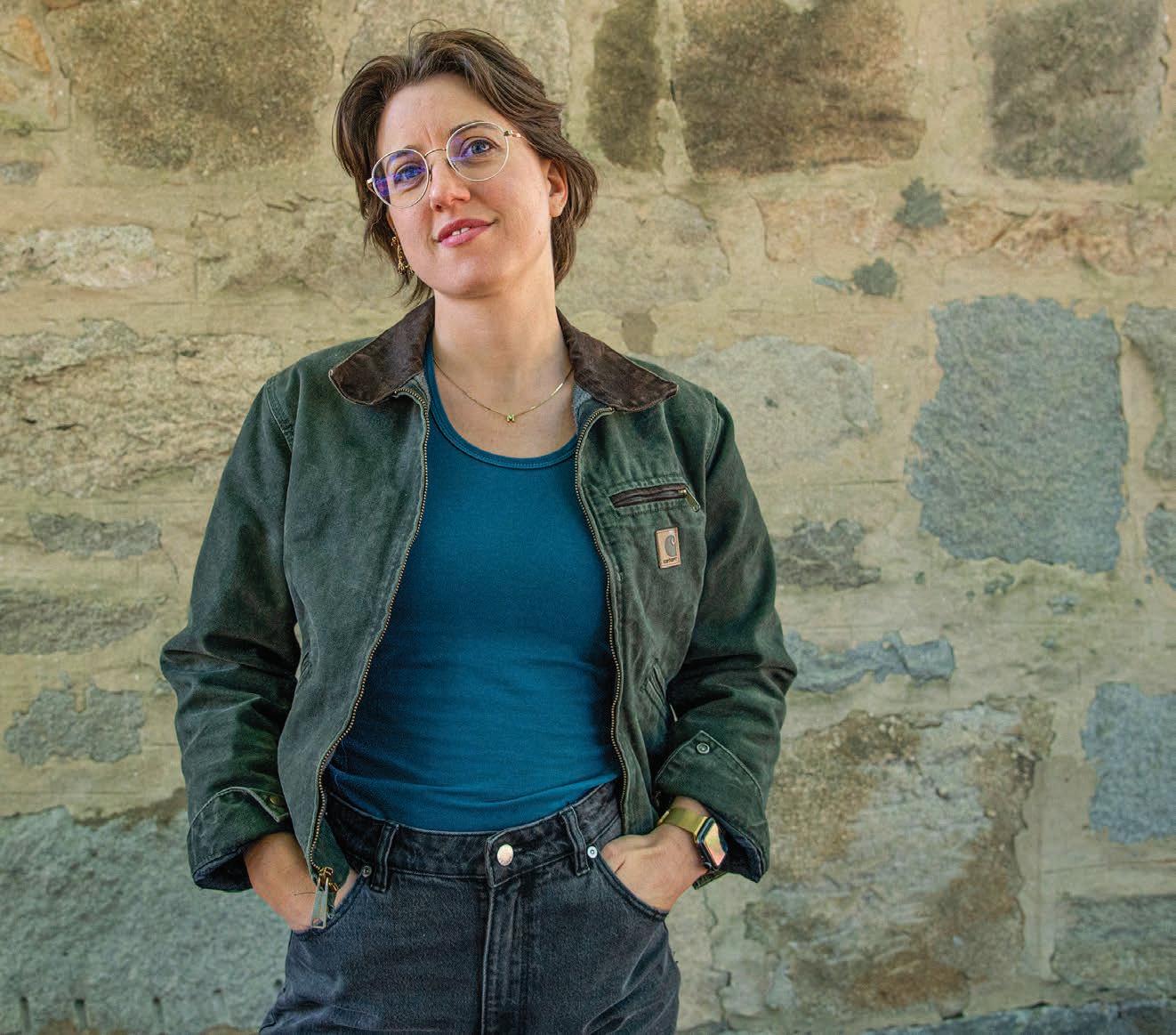
Frost’s interests were similar to hers, but he had been working as a freelance photographer for National Geographic. Even with his ability to
post to Nat Geo’s Instagram account (300 million followers), he realized that still photography was losing its power to bring about change as magazine and newspapers began folding or having lower readership. He was influenced by the popular documentary about captive orcas, “Blackfish,” which had quickly brought “the multi-billion dollar corporation Sea World to its knees,” he says. Frost would run into Lesh at an environmental film festival in London in 2015 and they soon began dating
– the rest is history.
Talk with them and you realize they’re on a heartfelt mission to see more documentaries made about the connection between nature and human health – films that might have a chance of helping change, or slow down, our destructive course.
“There are seven or eight major [U.S] film festivals and they have almost no films [about] what’s happening to the planet,” Frost says. “The biggest issue is there’s not enough people making
those films. Social issues films tend to be the most popular.”
But these are two filmmakers who believe environmental advocacy is social justice work – it’s all connected. “We’re trying to find creative ways to reconnect and inspire the protection of the planet,” as Lesh puts it. “When you’re fighting for the planet, you’re fighting all the systems in place that are dismantling a healthy planet, including capitalism, racism, the patriarchy, so many things.” –B.B.
21 style weekly Summer 2023 Summer 2023 style weekly 20
Kara Keuthan Beatty, MD, 39 Psychiatrist and owner, Resilience Health
Of all the unusual ways to choose a major in college, Kara Keuthan Beatty’s was more profound than most. During the summer after her freshman year, Beatty was driving her car when she was hit broadside by a truck running a red light. Four days in a coma were followed by inpatient rehabilitation and eventually, outpatient rehab. During the hospital stay, her doctor came in every day to engage her in conversation. “He’d ask if he could sit down and how my day was going, trying to get to know me as a person and not just a diagnosis,” Beatty recalls. “He listened to me and that was very powerful. I decided, ‘Hey, I want to do that.’”
When she told her mother she intended to become a doctor, tests showed that she was reading at a fourth-grade level and had post-traumatic amnesia, meaning her short term memory wasn’t being retained. But her mother encouraged her to pursue her dream and in medical school, she fell in love with psychiatry. “I knew I wanted to work with individuals with traumatic brain injuries [TBI],” she says.
Two trips to Richmond were all it took to decide that she wanted to do her residency at VCU and she could see herself living in Richmond. After briefly considering moving for a fellowship, she instead took one at a local private practice. “Although I’d always called Texas home, I grew deep roots here,” Beatty explains. “This feels like home.”
She launched her own practice, Resilience Health, in July 2018 in Midlothian, seeing general psychiatry patients as well as those who’d had TBI, strokes and neurodegenerative diseases like multiple sclerosis. “I tell people I focus on neuropsychiatry to address the depression, anxiety and grieving we feel when we lose an ability, or our sense of self,” which she understands from firsthand experience.

The past year has helped Beatty discover who she is on her journey to self-authentication. As a single mom, she feels her most important job is being a role model for her two young daughters. Next up, she’s working toward opening her space to other solo female practitioners so that they can collaborate as a team, an idea she’s long been formulating.
Beatty knows well that persistence overcomes obstacles: “Having a direction gives you hope.” –K.N.
Hannah Pollack, 36 Co-founder and president, Nightingale Ice Cream Sandwiches

“I always wanted to create something,” says the co-founder and president of Nightingale Ice Cream Sandwiches. “A big goal of my life has been finding that outlet.”
Pollack is one of those rare people who is talented—and patient enough—to roll out fresh baked cookies and hand churn ice cream while also possessing a business acumen that has helped her grow a successful company from the ground up.
Or rather, from the 2-quart tabletop ice cream maker up.
Back in 2016, Pollack unwittingly created the first prototype for Nightingale—a classic ice cream sandwich which went on the dessert menu at the now shuttered Greenleaf’s Pool Room. After tasting the sandwich, Pollack’s husband Xavier Meers, also a chef, said, “We should try to sell this.” So they did.
She made every sandwich from scratch that first year, packaging them for her husband to deliver to first customers like Ellwood Thompson’s, Shields Market and Chiocca’s Deli. Today, the Nightingale brand is available in retailers from Florida to Maine, as well as in Texas, Illinois and Minnesota. And Pollack is excited to add it will soon be available through a distributor on the West Coast.
Although they’ve grown exponentially—from a team of two to a team of nearly 40, and from an 850-square-foot space to a 20,000-square-foot production facility—the Nightingale brand is firmly planted in Richmond. A River City native, Pollack says keeping their roots here is “so important to us.”
She is proud of what she’s built, especially her strong team. In addition to building up a national ice cream sandwich empire, Pollack donates treats to a veterans charity and local hospitals. A veteran herself (she joined the Marines at 17), Pollack is personally invested in helping vets transition to civilian life any way she can. At the end of the day: That may well look like a chocolate blackout or strawberry shortcake sandwich.
“We donate a lot to the children’s hospital and to the hospital staff, especially these past couple of years,” says Pollack. “We just take a big truck down to the hospital filled with ice cream sandwiches and hand them out. With all the work they’re doing, we just want to bring them a little joy.” –M.S.H.
Summer 2023 style weekly 22
Elijah Lee, 15
Activist, Maggie Walker freshman
Growing up in the border town of Roanoke Rapids, Elijah Lee assumed that all families were as close and loving as his own.
Despite the tragedy of losing his father when he was three, Lee says he and his two older brothers and baby sister banned together with their mother, Jessica, guiding them. But in first grade Lee’s naiveté about loving families was shattered. “A friend told me about their experience with abuse, and naturally, as a first-grader, that hit me like a ton of bricks,” he says. Instead of feeling pity for his friend, Lee took his confusion and hurt and turned it into something much bigger. At age 10, he led his first child abuse awareness march.
By the time he was 13, he’d raised $3,000 for a pediatric safe room to be installed in his local
emergency department. This year, at 15, the Maggie Walker freshman spent his spare time lobbying for increased funding for youth mental health resources at the Virginia General Assembly. Three of the bills Lee worked on will be put into law this year.

“After school I’m able to respond to some emails and go to meetings and do my homework,” says Lee. “On the weekends I can plan marches and work on legislation.”
Lee and his family moved to Richmond from their small North Carolina town during the pandemic. He immediately fell in love with the city, he says, and jumped right into the work he has been called to from the time he was 6 years old. “Thankfully, the Children’s Hospital of Richmond was building their new tower at the time,” says Lee. “I said ‘I want to be a part of this. I want to help get a pediatric safe room there.’” For the safe room to be installed, Lee would need to raise $12,000 in one year. “We did it in less than six months,” he says.
When not leading marches, raising money for good causes or coaching young folks on how to be better activists through his nonprofit, Hear our Voices, Lee says he enjoys watching his friends play soccer, “I get along really well their parents,” he laughs.
He’s also helped launch a literature magazine for Maggie Walker in his creative writing class. “It will be a project that lasts the duration of high school, I’m excited to see where it goes,” he says.
He’s already considering colleges, of course— Brown and University of Virginia are currently topping the list. He hopes to take part in UVA’s Sorenson leadership program next summer.
No wunderkind is an island, and Lee credits his mother for being a huge part of all he has achieved thus far. “My mom was always quoting Nelson Mandela: ‘I never lose. I either win or I learn,’” says Lee. “That’s the motto of our house. Hearing that message has allowed me to flourish.” –M.S.H.
23 style weekly Summer 2023
Kyle Elliott, 37
Chief Legal Officer and general counsel, Virginia Community Healthcare Association
Maybe it’s because he comes from a family of doctors, or maybe it’s because he graduated from William & Mary Law School, but Kyle Elliott feels a sense of duty when he gets up and goes to work. Elliott fully embodies the idea of the “citizen lawyer,” someone who deeply understands the law and uses this knowledge to lead his community forward.
“I was lucky enough to get my first job out of law school with the Richmond City attorney’s office,” says Elliott. “I really wanted to be in the courtroom and try cases and defend people’s rights.”
Elliott transitioned from the world of civil litigation into private practice, helping small businesses navigate employment laws. In January 2022, he became in-house counsel for the Virginia Community Health-

care Association (VCHA), an organization he worked closely with while in private practice. The VCHA represents health centers around the state, making sure they can provide quality primary healthcare to all patients regardless of their ability to pay.
“In many parts of the state these community health centers are the only providers of primary care,” says Elliott. “They are truly a safety net for people.”
Moving out of the fast-paced world of business law has allowed Elliott time to devote to organizations that align with his values. He serves on a board of commissioners for the Richmond Redevelopment and Housing Authority (RRHA), helping to administer public housing through federal grants; is on the board of Read to Them, a nonprofit that promotes childhood literacy; and served as the Museum District Association president at a critical juncture.
Also, Elliott and his neighbors were in the thick of the action during the pandemic and civil unrest in the summer of 2020. “It was a compelling time to
be president,” says Elliott. “As one of the youngest, if not the youngest ever president of MDA, and the first ever Black president, I felt the need to say, ‘This is why people are marching.’ I’m not going to condemn them for expressing the view that Black lives matter—we need to recognize that.’”
It was only natural when, in 2021, the citizen lawyer ran for the Virginia House of Delegates on a platform of fully funding public schools, providing access to primary health care and affordable housing. “It was the most difficult thing I’ve ever done, and also the most rewarding,” says Elliott.
Although he did not win his seat, Elliott says he feels confident he can accomplish much in his current position. “Where I am now, I really can connect all of the things I’m passionate about—health care, housing, education—even though I’m not doing it from an elected seat, I’m still doing it,” he says.
And if the right opportunity to run for office again presented itself ? “I wouldn’t say no,” he says. –M.S.H.
Summer 2023 style weekly 24
Emmanuel “Manny” Baiden, 29 Owner of Manny Eats; co-owner/executive chef at Penny’s Wine
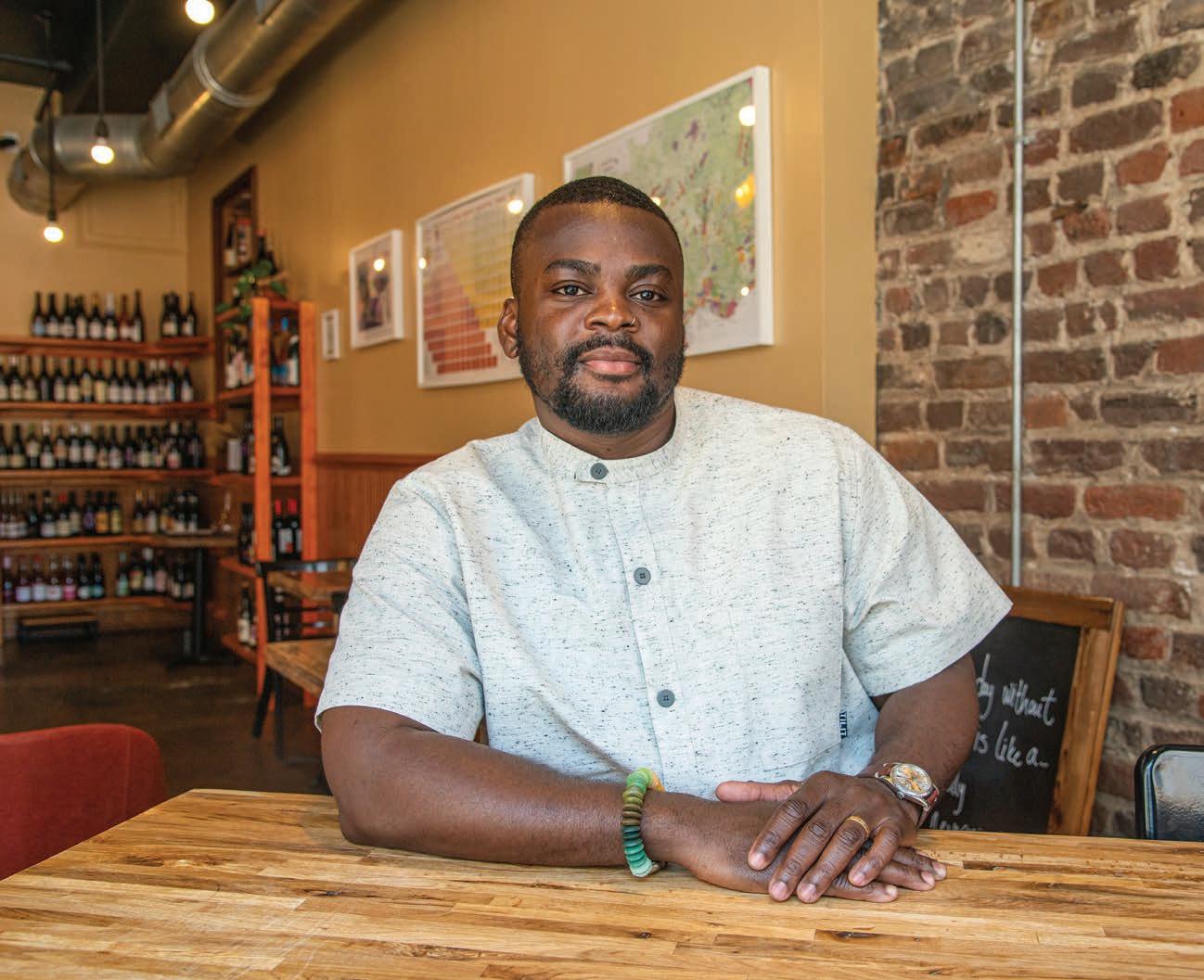
“Manny” Baiden is always looking to the future.
“One of my biggest goals was to open a restaurant before age 30, or be an executive chef at a restaurant,” he says. With the opening of Jackson Ward jewel Penny’s Wine Shop this February, Baiden can cross both those goals off his list.
Since moving to Richmond in 2019, Baiden has successfully grown his own private catering company, Manny Eats. “I’m happy to say I’ve gotten Manny’s to a point where I don’t have to worry about booking so much,” says Baiden. “In the chef world, if you’re not a chef at a restaurant you’re just depending solely on events, and everyone isn’t throwing a party every week.”
When it comes to hiring his services, people are finding reasons to celebrate.
“I was looking at the stats of what I’d done, and I did 58 events last year,” says Baiden. “That’s crazy to think about.” Of the countless events he’s catered over the past few years, some have been particularly special, like the dinners he’s donated
to raise money for the World Pediatric Project. “I’m from Ghana, I love the work they do, providing healthcare to children who lack access to it,” he says. “This year I was invited to the World Pediatric gala—I like giving back in a way that makes sense to me.”
Another aspect of giving back is imparting his culinary knowledge, introducing Richmond diners to West African dishes and flavors they may never encounter otherwise. At Penny’s, Baiden says he wants to keep American food the “focal point,” but will throw in “bits of West African influence here and there.”
“We have the coriander short ribs with sweet potato grits,” he notes. “People may not think to put those two flavors together, but I grew up eating grits and sweet potatoes are a staple in our diet. I want to be able to bring these things together on the plate that make sense and are delicious and approachable.”
Baiden is coming up on a busy wedding and event season, and the team at Penny’s recently introduced new spring items to their menu. But this chef has no intention of slowing down. “I want to make sure Penny’s has a foothold in the city and in the growing food scene, and I want to be even more active in the community,” he says. “Maybe I’ll even do a TV cooking competition.” –M.S.H.
25 style weekly Summer 2023
Zoe Golden, 31
and Jordan Pulaski, 33
Owners, Small Friend Records & Books
Less than two years in as owners of Small Friend Records & Books, Zoe Golden and Jordan Pulaski had already relocated.
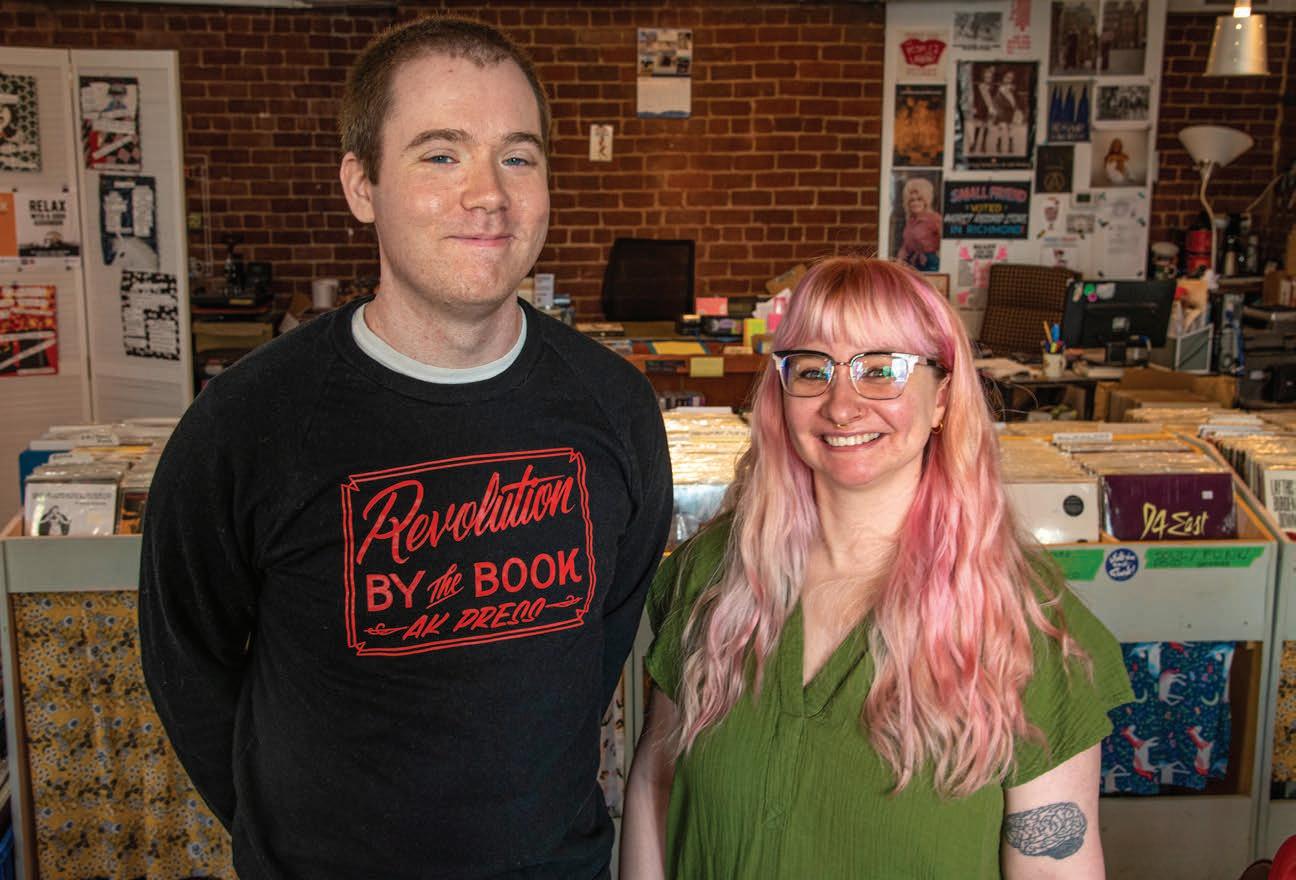
The married proprietors first set up shop in 2018 adjacent to the 17th Street Market, which underwent unexpectedly drawn-out renovations that decimated foot traffic. In January of 2020, they moved to the corner of Main and N. Lombardy, in the newly subdivided Baja Bean Co. building. Regardless of where they’re located, though, their passion for helping sounds and ideas find the people who need them remains unchanged.
A longtime Richmond resident, Golden does much of the record buying for the cozy basement store, which offers an adventurously curated selection of new and used titles. Golden specializes in music that’s been rediscovered and repressed for the first time in decades, giving new life to old sounds, from Japanese city pop to Egyptian bigband jazz. “I can’t have everything,” Golden notes,
acknowledging that there are other stores in town where you can pick up the latest Taylor Swift album. “What I think I can cover that isn’t already being covered is [this] cool, weird stuff that other people aren’t going to have. I started focusing way more on that, and that has turned out to be pretty successful.”
From the outset, Pulaski, who grew up in Maryland and met Golden when the two worked together at Relay Foods, had a goal of selling books that fostered independent thought. Relocating to the Fan caused Pulaski to question whether the same titles would remain popular with customers. “Moving to this location,” Pulaski says, “we’ve been able to sell more of everything, but especially more of the more radical stuff that we wanted to sell from the get-go… There’s definitely an appetite for different ideas, for new ways of thinking.”
But there are readers who can’t make it to the corner of Lombardy and Main, some as a result of incarceration. Following the lead of similar programs across the country, Small Friend started its own Books Through Bars operation, which collects funding, fields reading requests and puts those books in the hands of interested prison-
ers. “One or two people knew some people in jail,” P ulaski says, “they told them about it, and since then it’s basically just spread through word of mouth.”
“Usually, it’ll start with one guy in a particular facility who will write us a letter, and before you know it, there’s 20 of them in that facility who are requesting stuff,” Golden says. “It’s been pretty cool to see how that moves.”
That’s not all the Small Friend owners have done to keep resources moving to those in need. They regularly collect and post flyers and calls to action — online and in person — for community organizations like Mutual Aid Distribution Richmond, the Richmond Reproductive Freedom Project and the Richmond Community Bail Fund. They’ve even offered up their storefront as a collection site for supplies when needed.
Their initial vision for the store involved providing room for community gatherings and zine swaps — goals they’d consider returning to if they eventually move to a larger space.
“As far as what’s actually achievable with what we are,” Golden says, “I feel like we’re pretty happy with the level we’re at.”–D.J.
Summer 2023 style weekly 26
,
Ms. Jaylin Brown, 26
Musician and programs coordinator, Capital Area Health Education Center
If you get what you give, in terms of the energy you put into the universe, Jaylin Brown is as energetic as they come. “It always comes back to you,” Brown confirms.
The 2020 VCU grad has been receiving plenty of acclaim of late — for her work onstage in the Firehouse Theatre’s production of the “Ghost Quartet” musical; for an instant-classic Shockoe Sessions set from November that’s being released as a live album on Shockoe Records; and for her 2022 EP, “Take It Easy,” which was shortlisted for the Newlin Music Prize.

The support has been monetary, as well. Lately
her gigs are geared toward raising funds for a one-year graduate program at Berklee College of Music’s campus in Valencia, Spain. She’s been feeling the love from all corners of Richmond’s music s cene, including from Shockoe Records, which is funneling the net profits from her live album to the fundraiser. “It’s just another testament to how much my community supports me,” Brown says. “My goals are definitely a reach, and to have so many people lift me up so I can get closer to that is just amazing.”
Her music is uniquely giving in and of itself. “Take It Easy” is more than a title, it’s a genuine appeal to those around her to find peace, a theme woven throughout the EP’s five tracks. “When you can’t see the light through the rain / When you can’t seem to feel the warmth of the sun through the pain / I’ll be there for you,” she sings on “You + Me.”
The same goes for her day job with Capital Area Health Education Center, a federally funded program that aims to help rural and underserved populations. As programs coordinator, Brown is the uplifting one. Whether she’s managing social media, sending health education students weekly notes of encouragement, connecting them to career advancement opportunities or helping organize events like April’s Community Health and Wellness Block Party in Colonial Heights, Brown is cheering on patients and future practitioners alike. “It sort of mixes my capacity to promote things and create,” she says.
Heading to Spain won’t mean the end of Brown’s involvement with Capital AHEC. She’ll earn a stipend by devoting a handful of hours each week to the organization.
“The cycle will still continue,” Brown says, “no matter where I go.” –D.J.
27 style weekly Summer 2023
Ali Thibodeau, 31 Singer and songwriter
There was little doubt Ali Thibodeau was going to end up an artist growing up with a dancer and choreographer as a mother and an artist and illustrator as a father. It was just a matter of what discipline she was going to choose to express herself.
She enjoyed early success in theater, including a best supporting actress award from t he Richmond Theatre Critics Circle in 2009 while still a teenager. But she ended up frustrated. “I was in New York auditioning for musicals and was so tired of being rejected so much,” Thibodeau remembers. She took to busking on s ubway platforms, slowly building a repertoire of selfpenned, folk-tinged paeans to hope, love and heartbreak.
She spent a decade learning the ropes and building an audience, ultimately returning to Richmond and assuming the musical mantle Deau Eyes. Two albums later, she’s winning accolades that portend great things on the horizon: NPR named her one of 2023’s artists to watch and she recently beat out an impressive list of local acts to take the 2023 Newlin Music Prize for her latest album, “Legacies.”
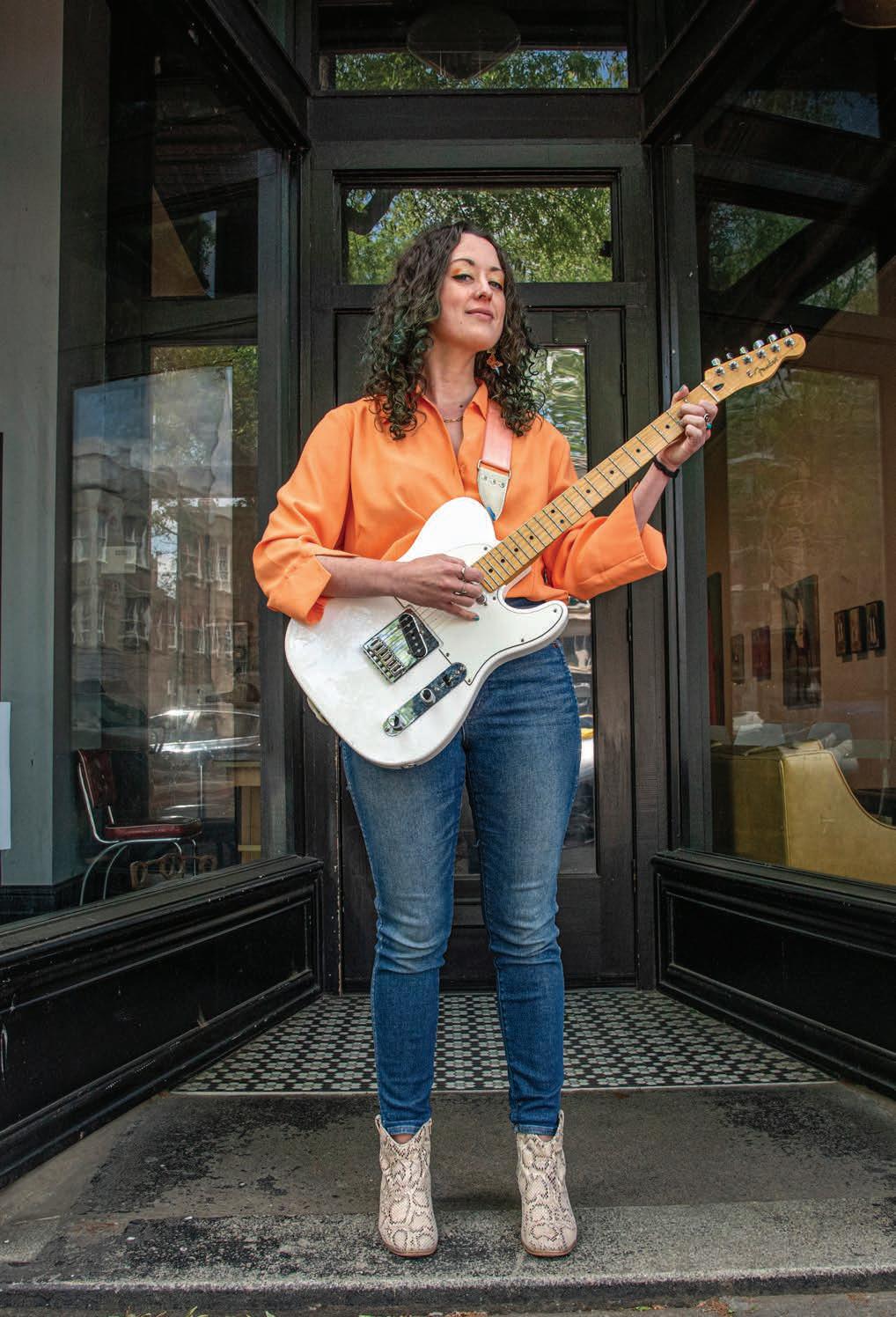
Even with more than 40 gigs lined up over the coming months, she’s finding time to explore new collaborative opportunities with local jazz legend Charles Owens through a monthly residency with his trio at Dürty Nelly’s Pub in Charlottesville. Her pursuit of an eclectic, ever-evolving sound has made it hard for album labels to pigeonhole her but has endeared her to fans.
“I’ve had music industry people say to me, ‘What you really want to do is find a genre that’s gonna fit into the pinhole of an algorithm,’” Thibodeau says. “I’m like, why would I do that? For me, art is about discovery. Some people really love one genre so much they want to stick to it. I admire that but I get way too restless with that kind of thing.” – D.T.
Summer 2023 style weekly 28
Trevor Dickerson, 34 Founder and creative director, Boulevard Creative

Talk to Trevor Dickerson and you quickly get a sense of his love for his hometown of Richmond. Raised in the West End near Short Pump, he’s a VCU grad who is always trying to find a way to be active in the community and work jobs that allow him to help make a better city. Allow us to count some ways.
First, there’s RVA Hub, a hyperlocal, neighborhood-based, online news source that Dickerson describes as a continuation of RVA News (whose founder provided him with a decade worth of archives) that he runs with partner, Richard Hayes. “It’s a labor of love, a passion project that I started doing in 2016,” Dickerson says.
Also, he moved to Scott’s Addition in 2013 when it was still mostly an empty, concrete canvas and began attending neighborhood meetings. Dickerson was president of the Greater Scott’s Addition Association from 2016 until 2021. “Just leading the neighborhood through such a transitional time was also transitional for me,” he explains. “You had all these stakeholders and rapid growth, which helped me grow as a problem solver and leader. [Stuff like] helping people interface with the city over parking issues or basic safety.” He feels like the neighborhood drives so much tax revenue for the city, but “we don’t get it back,” he says.
If you’re thinking to yourself, “he sounds like a politician,” you may not be far off. Dickerson tells Style Weekly that he is in the early stages of considering a run for City Council (or maybe even a mayoral run), but there’s nothing official yet. “I think you need
to be the change you want to see and get skin in the game,” he says. “Richmond is an awesome city with rich history and a rich food scene. On the flipside, Richmond thrives, I think, despite City Hall and not because of it.”
Dickerson also works with local businesses and contractors though his 9-year-old business, Boulevard Creative, a creative marketing service company offering everything from PR relations to web design and graphic design. He enjoys helping small businesses more than anything, he says. “Just giving mom-and-pop places and small businesses a leg up.”
But that’s not all: In 2015, he was among the group that started Breakaway RVA, a biking group that meets monthly (May to October) around the city and converges on cool spots to learn about Richmond. If you’re interested, all their upcoming rides are posted on breakawayrva.com. –B.B.
29 style weekly Summer 2023
Leah Branch, 37 Executive chef, The Roosevelt
The Roosevelt has been on the national culinary radar for years. Since opening more than a decade ago, the “untraditional” southern restaurant has graced the pages of Garden & Gun, Southern Living, Esquire and New York Magazine.
Owners Kendra Feather and Mark Herndon could have rested on their laurels, perhaps, and still brought in the crowds. But they were not satisfied with settling, and instead hired uber creative, talented and thoughtful chef Leah Branch in February 2022.
Although she’s only been at the award-winning Church Hill spot a little over a year, Branch possesses
the cool equanimity of someone who’s worked at the restaurant for years.
The Chesterfield native is humble and gracious and shouts out everyone in her ecosystem before mentioning her own immense talent. She gasses up kitchen staff newcomer Nick Aaron and talks excitedly about purveyors like “Digger” Jay Marion and Village Garden’s Barbara Hollingsworth and David Hunsaker. “The local farmers have all just been really nurturing, passing on what they do to the next people to come along,” says Branch.
After graduating from Johnson & Wales University in Charlotte, North Carolina, Branch went to work as executive chef at Moonrakers in Beaufort. Branch says she decided to come back to Richmond to be closer to family and to fix up her grandmother’s home, a property that has been in the family for gen-
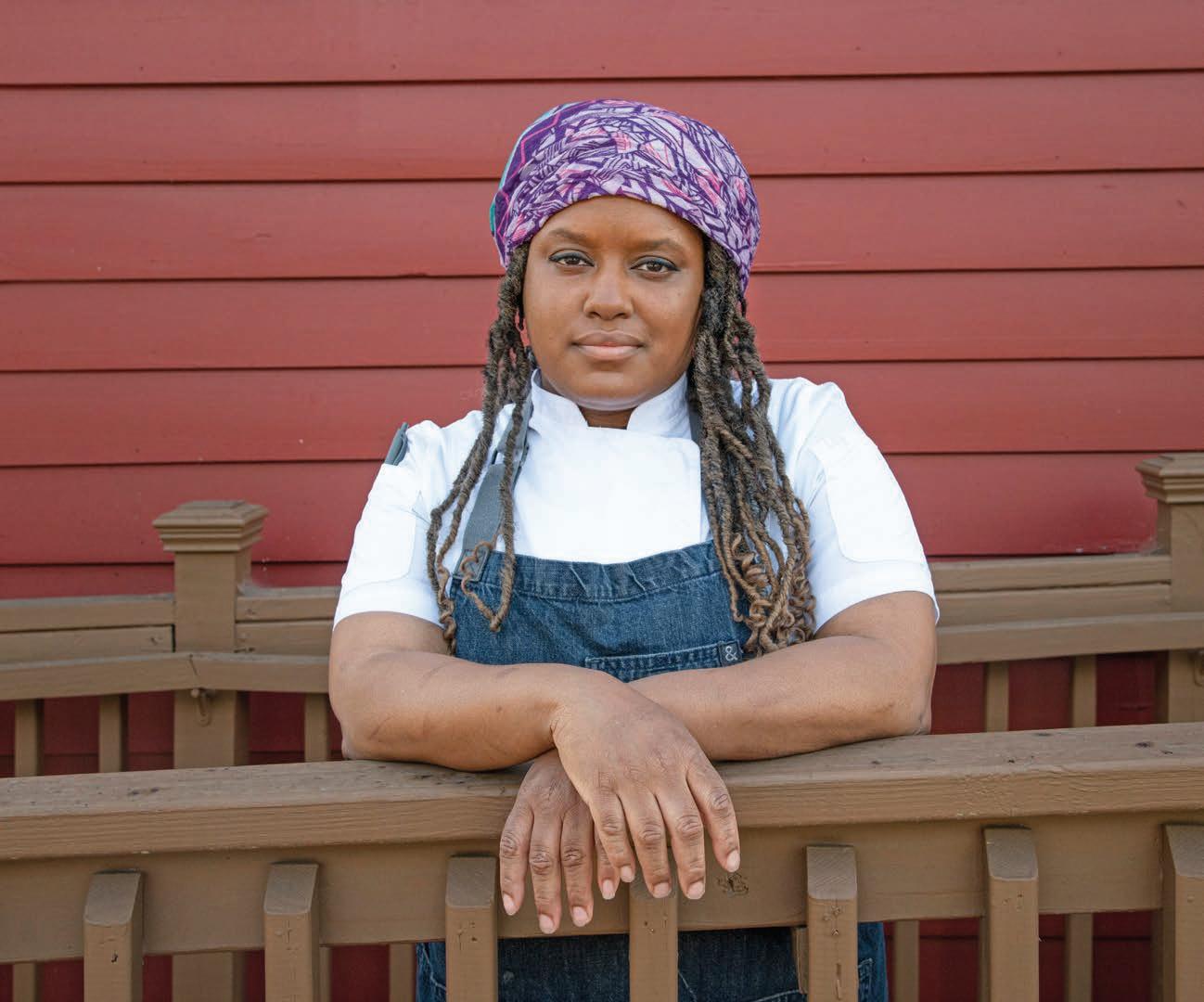
erations. “With my dad getting older, I wanted him to see his mom’s place—where he grew up—restored,” says Branch.
Regarding her work philosophy, she believes it’s important to allow chefs to have autonomy at their stations and to highlight their efforts.
“We really allow them to order what they want as far as produce and what’s seasonal and give them first dibs to play around,” she says. A recent spring feature from sous chef Greg highlighted his “famous gnocchi” topped with English peas, sautéed ramps and pea shoots.
“I want to showcase who is working behind the scenes,” says Branch. “A lot of people think the executive chef is the one making all your food, but it’s really such a huge team effort. And I want to make sure they feel appreciated for that.” –M.S.H.
Summer 2023 style weekly 30
Anjali Ferguson, 35 Psychologist
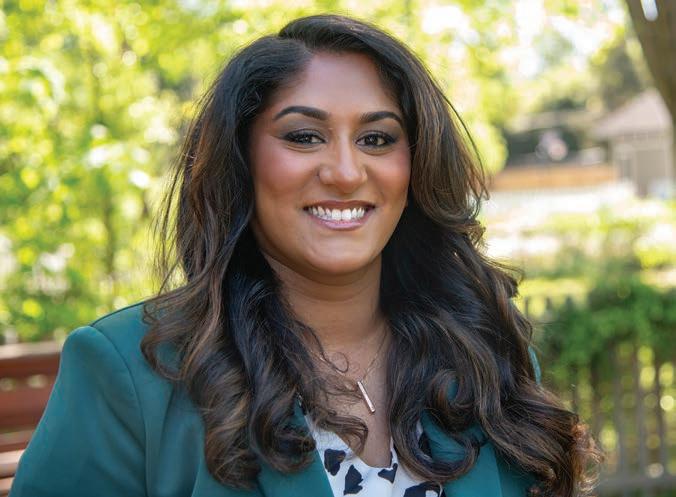
Born and raised in Northern Virginia, Dr. Anjali Ferguson’s parents moved the family back to India when she was eight. Two years later, they returned to Virginia and the cultural differences in everyday life struck the young girl. “American culture is very individualistic and independent,” Ferguson says. “South Asian and some European cultures are collectivist, putting the family’s needs ahead of individual family members’
needs. The conflicting demands of integrating both cultures take a toll that causes many second-generation immigrant children to have mental health problems.”
That passion for and commitment to children’s mental health determined Ferguson’s career path as a culturally responsive psychologist. Marrying a Black man and having a child helped focus her work through the lens of social justice.
Because there are very real differences in the lives of minority and marginalized families that can affect parenting, her goal is to provide tools so families can have the needed conversations. “My husband and I released a children’s book called ‘An Ordinary Day’ to teach about microaggressions in a nuanced way to young children,” she says. “We want to get people to talk about these things as a way to shift their thinking and be more inclusive in their daily lives.”
In 2021, she launched Parenting Culture (parentingculture.org), a free, research-informed, inclusive parenting resource intended to support parents, educators, and practitioners. Curated by a team of early career psychologists of color with professional expertise in children’s mental health and lived experiences as parents, the site includes a podcast series. “Our resources offer a more inclusive lens into parenting,” she says. “We want all families to feel represented and understand that there’s no one-sizefits-all approach to raising children.”
Making resources available so that conversations about race, gender, reproductive rights and gender identity become more mainstream is Ferguson’s goal. Parents raised to avoid uncomfortable discussions need to understand that making conversations about important issues an everyday, matter-of-fact occurrence will help protect the mental health of the next generation.
“Young children want language to discuss what they notice, but we keep them from having it because we as adults aren’t comfortable discussing these things,” she says. “Talking is preventative, safe and protective in the long term.” –K.N.
Anna Yates, 39 Licensed clinical social worker, Thriveworks
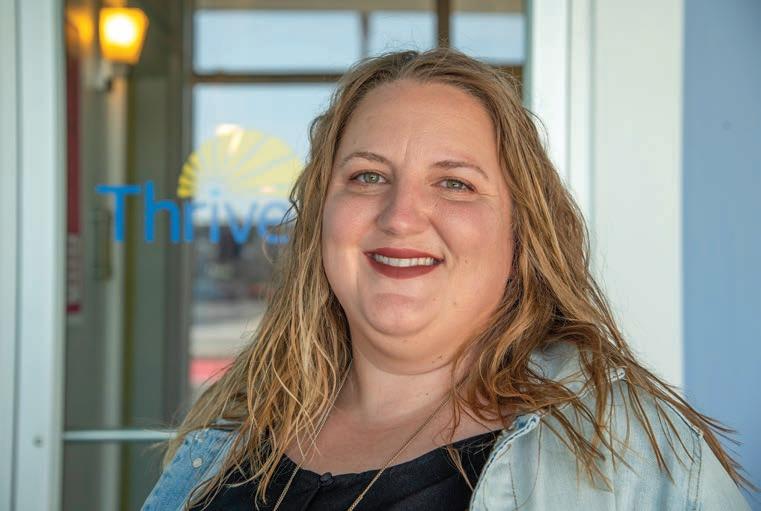
Therapist and social worker Anna Yates believes that trauma can deeply impact us in ways we don’t quite understand. “It impacts our brain and our behavior and our relationships,” she says. “And dealing with it is a really important part of figuring out how to get along with people.”
Yates is a licensed clinical social worker at Thriveworks, a national mental health care company with locations in Richmond, but she spent several years doing child welfare work at Children’s Home Society of Virginia and the adoption group Extra Special Parents. Her focus was mainly on foster care and adoption family preservation. “I do a lot of work today on trauma and how it affects the brain and how to use that knowledge to help people heal. That was developed from the child welfare work.”
Yates, who is also an adjunct professor in the master of social work program at VCU’s School of Social Work, is parenting her 14-year-old niece, who is transgender. It’s only a coincidence that she specializes in treating LGBTQ+ patients. “They experience poor treatment a lot when it comes to mental care and that can discourage them from seeking help if they need it.” She adds that this population, an ongoing target of political extremists, is at much higher risk of substance abuse and suicide. “It’s an area I care very deeply about.”
Her cognitive behavioral therapy sessions often combine talk therapy and physical activity. “Anxiety and trauma affect us on a very deep and primitive level that has to be addressed by learn-
ing to retrain your brain as well as calm your body down.” Thriveworks offers online therapy to patients, and she thinks it’s an important option. “It’s very important for people to have increased access to telehealth services.”
In her own search for calm, Yates likes to hang with her niece, play trivia games with
close friends, and take her dog, Remus, on long walks. The budding gardener is also raising three chickens, but declines to give their names. “They were named after Harry Potter characters,” she says. “But since J.K. Rowling turned out to be transphobic, we’re probably changing them.” –D.H.
31 style weekly Summer 2023
Will Keck a.k.a. OG ILLA, 34 Owner and creative director, theMSQshop / CNTR
Will Keck has already crammed several lifetimes into his 34 years. Raised in foster care, at one time homeless, he’s been at times a celebrated rapper, prolific music promoter, creative entrepreneur and convicted felon for marijuana possession.
The former foster care child says he carries a chip on his shoulder about the latter. “I want to break the stereotype that just because you made a mistake in your life, that’s all you are,” he says. “As long as you stay focused and understand what your purpose is, you can get past all of that.”
It’s a message that he’s spread from the Boys and Girls Club, where the owner of theMSQshop – specializing in designs for clothing brands – does workshops for kids on creating fashion, to the address that he gave at the annual fundraising event for Virginia’s Kids Belong, which unites government, businesses, churches, nonprofits, and creative leaders to address the issues surrounding foster care in the state. “My message was that people shouldn’t pity foster care kids, they should help to inspire us,” he says.
He grew up in a turbulent household and, for eight years starting when he was 10, Keck bounced around in foster care across the region before ultimately landing in a group home. The Tucker High School grad persevered through hardship to earn a soccer scholarship to Virginia Commonwealth University, before an injury waylaid him.
He started his rap career as OG ILLA in 2011, inspired by Lil Wayne and Rich-
mond’s own Nickelus F. As ILLA, he has made nine albums and EPs, headlined at the National, and performed gigs alongside the likes of The Roots, Playboi Carti, Chief Keef, Action Bronson, and Riff Raff.
“I’m transitioning now,” he says. “For a long time, my whole identity was being a rapper ... I didn’t want to be known for anything else. Most people didn’t even know me as Will. Now I’m making music when I want to and I have no desire to be a rapper for my career anymore. [The rapper] is still there, he’s still the inspiration for all of this creativity, but I’m enjoying being Will for a little while.”
Keck’s latest initiative is CNTR, a 3,408-square-foot creative space in downtown Richmond that he opened in 2022. It features retail clothiers in front – “all Virginia clothing brands” – an art gallery, a performance space, and a recording studio. “As a musician growing up, there weren’t places for me to go and be around other creatives, who were a part of my community,” he says. “But it’s important to have spaces like these.”
In April, the entrepreneur, who used to run the Kingdom nightclub in Shockoe Bottom, launched the free, three-day Something Indie Water Festival in Virginia Beach, an indie supplement to Pharrell Williams’ large-scale Something In the Water event. “That’s something we plan to do annually,” he says. “I’m really proud of it because it’s specifically a platform for Virginia artists.”
In his off time, Keck kicks back with his fiancee Shantel Dorsey and their three sons. He thinks of his stint in jail as a wake-up call that he needed to realize his potential. “I knew I was meant to do something more than this, I told myself. And now I want to be a resource and a leader in creating those kinds of things where people network and perform and listen. I’m taking on that role as a facilitator.” –D.H.
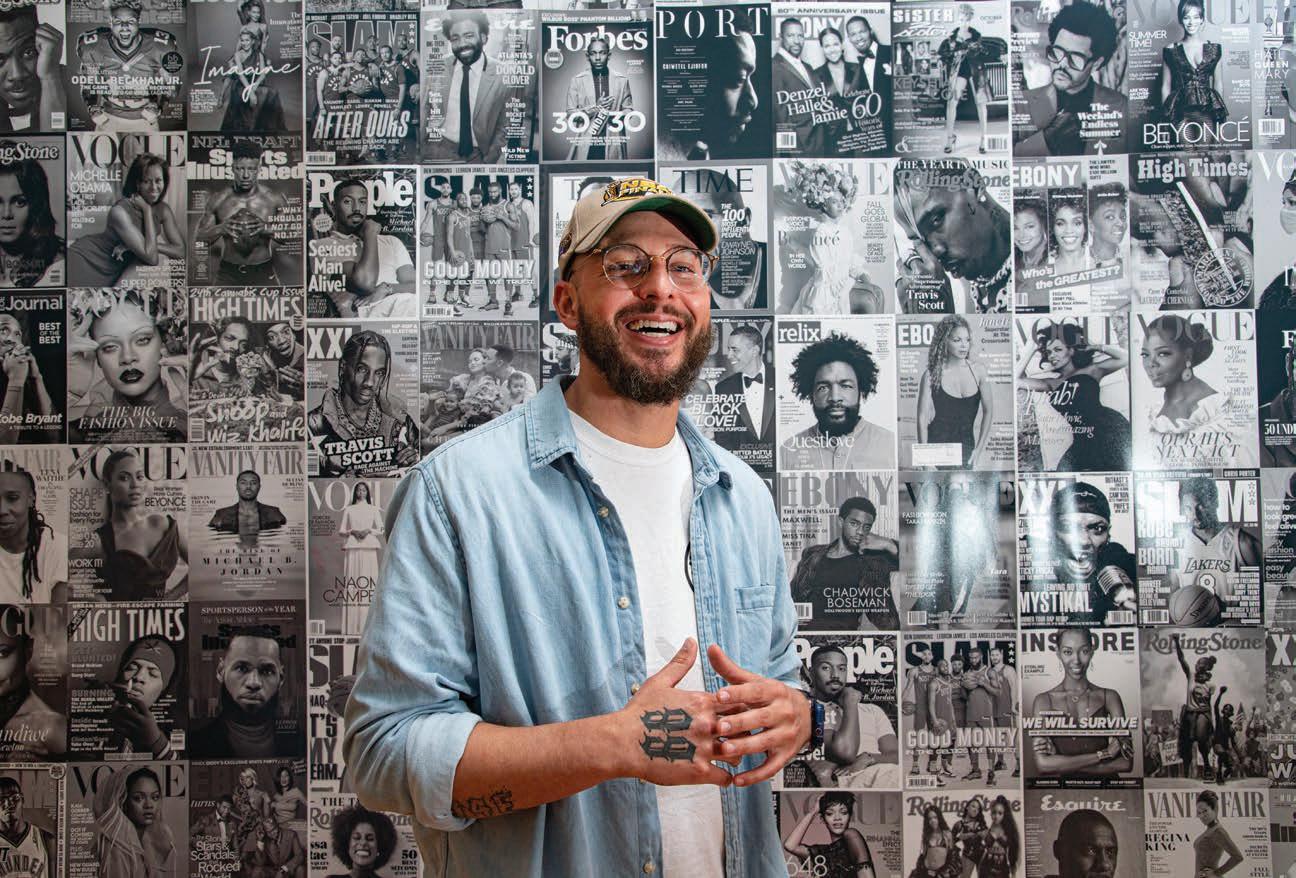
Summer 2023 style weekly 32
Mercedes Edwards Buck, 37 Owner RICH Nail Lounge and Suites, Educational Technology Integrator RPS
Mercedes Edwards Buck never cared about making a fortune. And yet, for as long as she can remember, Buck has been incapable of leaving anything half-finished.
“Once I put my mind to something or set a goal for myself, I need to do it,” she says.
An educator with an insatiable entrepreneurial spirit, Buck is the Educational Technology Integrator (ETI) for all of Richmond Public Schools and, this past September, opened a luxury nail salon in Manchester.
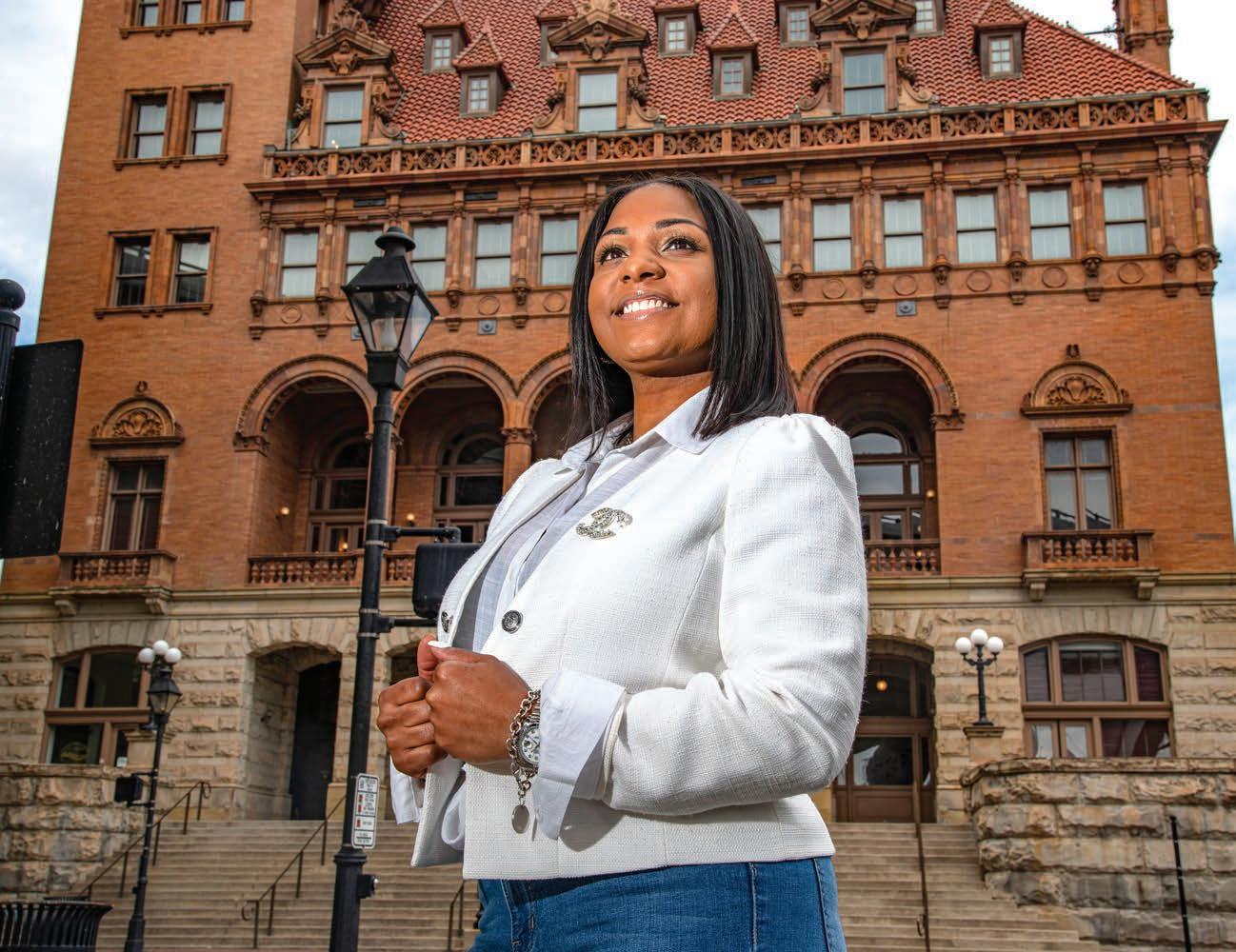
“People would say, ‘Oh, who wants to be a nail tech when they grow?’” says Buck. “Same thing with teachers, my teachers always used to talk down about their salaries. But after getting my first degree
I said, ‘You know what? Let me do what I’m interested in.’”
P ursuing her passions and making them work financially has made Buck a highly sought-after mentor. “I love teaching young women and helping them learn from my experiences,” she says. So much so that last year Buck published a self-help book, “Building An EmpiHER: When You’re a Girl Who Wants it All!” The book outlines Buck’s varied accomplishments—from buying her own house at a young age to achieving an 800 credit score—and breaks down the step-by-step process she followed to cross each goal off her list. “Whenever anyone comes to me, I just direct them right to the book,” she says.
Buck offers daily pearls of wisdom to her students through her role as ETI—“We talk about things like digital citizenship and the effects of a digital footprint”—and counsels Henrico and Richmond County middle and high school girls through her nonprofit
b.i.l.l.i.e (Believe in Love Like It’s Everything) that she founded in 2013.
Buck says one of the greatest b.i.l.l.i.e success stories is from the nonprofit’s early days. “The membership really grew around this young woman,” says Buck. “She started when she was in seventh grade and watching her take leadership has been so cool.” Buck’s mentee graduated from the high school cosmetology program and now rents a suite at her mentor’s salon. “She was able to use all of her resources and make connections and become independent, in spite of her family issues,” says Buck. “She’s just blossomed.”
Buck says she hopes to soon create a “direct pipeline” between local high school cosmetology programs and RICH Nail Lounge and Suites. Right now, all the staff at her Hull Street spot graduated from Henrico, Hanover, or Richmond Public Schools.
“I just want to keep motivating girls and being a positive role model,” says Buck. –M.S.H.
33 style weekly Summer 2023
Annie Rhodes, 32 Director, Virginia Memory Project; research scientist, Virginia Center on Aging
When she was only 16, Annie Rhodes began a job as a direct care worker in assisted living in Castle Rock, Colorado. She loved the work, but quickly realized that our systems of aging “needed radical transformation,” as she puts it.
This epiphany has guided her work in the aging field ever since, as she has worked tirelessly to merge advocacy and data-driven approaches.
Rhodes moved here in 2017 to attend VCU and become a gerontologist as well as to pursue a doctorate in health science. She began working at the Virginia Center on Aging just before the pandemic. Over the last year, she started one of only four Alzheimer’s [and related dementias] disease registries

backed by the Centers for Disease Control (CDC) in the nation, partnering with the CDC, VCU, and the Virginia Department of Health. Known as the Virginia Memory Project, it launched in June 2022.
Put simply, the project’s intentions are to get better information for Virginia, including hotspots and projecting trends. “We believe 40% of cases of dementia are preventable,” she says. “But we just don’t have good data.”
So far, she says it’s been phenomenal to use the power of data to advocate for resources and better transparency in Virginia. “Especially knowing there are health equity concerns that disproportionally impact people of color,” she says.
Having initially received a shoestring budget, she is proud to report that her funding was renewed with an 800% increase after the first year, and she expects it to go up even more this year.
She’s also been trying to align the workforce’s
needs with those of older adults being served in institutional and home-based settings to further common cause: We all age, as she points out, “We need to be honest about the gaps in our systems.”
Her Top 40 nomination form labeled her a “nursing home abolitionist and emancipatory gerontologist.” She explains that she has watched in Virginia as people with Alzheimer’s slept on the streets with nowhere for her to refer them; it’s a challenge that has only been exacerbated by the pandemic, with older adults increasingly isolated. “The pandemic killed 300,000 nursing home residents,” she says. “And for every two nursing home residents that died from COVID, another one died from neglect.”
Of course, this doesn’t mean Rhodes wants to do away with all nursing homes. She still wants a high level of care, but with more transparency. Or as she puts it: “I don’t want the system that puts profit over care to exist.” –B.B.
Summer 2023 style weekly 34
JUD FROLEICH
Ann Flippin, 37 Executive director, Autism Society of Central Virginia

Growing up with an autistic sibling can make for a rollercoaster childhood.
For Ann Flippin, having a younger brother with autism helped her become who she is today and ultimately led to her career path. Although she left James Madison University with a degree in interior design, it was her time spent doing community service and fundraising with her sorority that propelled her into the nonprofit world. “My brother taught me so much compassion, resilience and patience,” she says. “That relationship shaped me and put me on the path to support local autism causes.”
Understanding firsthand the struggles individuals and their families face, Flippin is highly motivated to create a community of support and significantly increase services for families. She’s been executive director of ASCV since January 2018, serves as the current chair of the Virginia Autism Council and is active in the annual General Assembly legislative sessions, advocating for ways to enhance services for the local autism community. “I love the community we’ve built at the Autism Society,” she says. “We try to bring more people into the community and it’s very rewarding every time a new connection is made.”
The latest Centers for Disease Control and Prevention (CDC) numbers show that one in 36 children is diagnosed with autism, up from one in 44. Flippin and her team work to fill the gaps and expand their programming to meet this greater demand. Last year, they hosted the RVA Duck Race and Festival of Inclusion, a new community event that attracted more than 7,500 participants and raised over
$160,000 in its first year. “It was truly magical,” Flippin recalls. “Individuals could be themselves and feel embraced for their unique talents and abilities, free from judgment.”
Her two young children also keep her busy. She
takes her older daughter to some of the ASCV’s programs and is gratified at the bonds she forms while having fun. “It’s promoting inclusion and it’s also peer-to-peer modeling,” she says. “She loves it.” –K.N.
Daniel Riddick, 39 Director of marketing and communications, Ukrop’s Homestyle Foods
Glen Allen native Daniel Riddick says playing in his high school band at local clubs like Ally Katz and Twisters was his first foray into the creative world.
As a student at Virginia Tech, he melded his love for art and passion for business into an advertising career. And after attending the VCU Brand Center, Riddick decided it was time to leave his comfort zone and jetted off to the Big Apple, working on accounts like Cheerios and Hershey’s. “I was lucky enough to see the world,” says Riddick. “I flew around the globe multiple times over helping make Hershey’s TV commercials.”
Once they hit 30, Riddick and his wife decided to start a family and moved back to the River City. “I wanted to transition out of the fast-paced, volatile world of ads and do something a little more stable and predictable,” says Riddick.
Enter: Ukrop’s Homestyle Foods.
Ukrop’s has been a mainstay of the Richmond food scene for nearly 90 years. Riddick, a devotee of the iconic rainbow cookies, chicken salad and breakfast pizza, took over as the company’s director of marketing and communications in 2017. In “conjunction with executive leadership,” Riddick plays a “key role in developing the strategy” of Ukrop’s and where the company wants to go in the next decade—and decades to come.
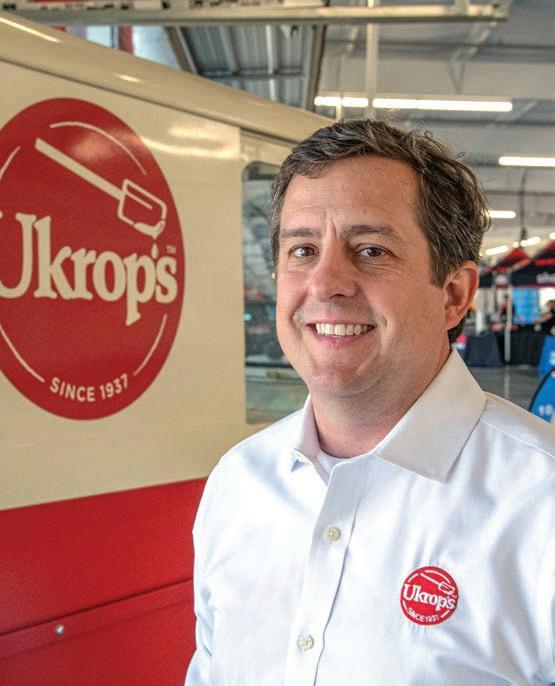
Perhaps the most notable project that Riddick has helped to plan and execute was the opening of Market Hall in December 2020. In collaboration with a group of other creative pros, Riddick helped establish the “Gather, Nourish, Share” mission of Market Hall. “Market Hall is a place for the community to gather,” says Riddick. “Nourish is a nod to our food, not necessarily from a health perspective, but in that it’s wholesome and nourishes the soul. The sharing piece is about spreading positivity and making our community a better place.”
In his (limited) spare time, Riddick, tries to pay it forward. For the past five years, he has served as adjunct professor at VCU and started teaching classes at the Brand Center three years ago. “Mentoring young people in their career has always been a major of passion of mine,” says Riddick. “You don’t know what you don’t know, and sometimes I think, ‘Man, I wish I’d had someone to help guide me.’ That’s the lens through which I do all of this.”—M.S.H.
35 style weekly Summer 2023
Jennifer Case, 39
Executive director, Virginia Down Syndrome Association

A licensed clinical social worker, Case first became aware of the Virginia Down Syndrome Association (formerly Down Syndrome Association of Greater Richmond) a little over nine years ago, when she learned that her third son, Brayden, would “most likely” be born with Down Syndrome.
Case admits that when she was pregnant, she wasn’t quite ready to ask for help or seek guidance from other parents. As soon as Brayden was born, though, she knew she wanted to be part of a community that understood the blessings and challenges of this diagnosis.
“I got connected to a local mom’s group and those people really became my people for the next several years,” says Case.
When Case saw the announcement in 2021 that
the organization’s executive director was retiring, she “had a moment of pause.”
“I was in a place in my career where I was trying to figure out what to do next, what my next challenge would be. This felt like the right step,” says Case.
As executive director of the Virginia Down Syndrome Association (VDSA), Case oversees the services and programs provided for families located in all central Virginia, east to Williamsburg and Newport News, down south to the state line, west to the Shenandoah Valley and north to Fredericksburg. These services include everything from helping parents navigate resources to find the best pediatrician or dentist to a “first call program” which Case is particularly proud of.
“The first call program is for when families receive that diagnosis, it could be prenatal or at birth,” explains Case. “We partner with hospitals, Labor and Delivery and OBGYN offices so they know we exist, and they can be educated on the best way to provide that diagnosis to a family in a way that is not
scary or overwhelming.”
The first call is just the beginning of the services VDSA provides.
“Something I really like is we serve the entire lifespan,” says Case. “A lot of people don’t realize that even though the Down Syndrome diagnosis has been around a long time, just 40 years ago individuals with Down Syndrome had an average life expectancy of 25. I often think about that statistic. My son is nine, I can’t imagine that his life would be more than a third over.”
Today, thanks to medical advancements and more support systems in place for individuals with Down Syndrome and their families, the average life expectancy is in the 60s. But Case isn’t satisfied with that data.
“There is still a high underemployment and unemployment rate for individuals with Down Syndrome,” says Case. “There’s also increased social isolation into the adult years. Those are things we want to see change. I just imagine—what can it be in 40 more years?”–M.S.H.
Summer 2023 style weekly 36
Sesha Joi Moon, 39
Director of the Office of Diversity and Inclusion, U.S. House of Representatives
“No matter where I go in life, Richmond means the most to me,” says Sesha Joi Moon, who was appointed by Speaker Emerita Nancy Pelosi to be director of the Office of Diversity and Inclusion in the U.S. House of Representatives in 2022. The assignment follows her terms as the director of Diversity, Equity and Inclusivity at the National Institute of Standards and Technology, senior talent management strategist at the U.S. Patent & Trademark Office, and senior policy specialist at the D.C. Department of Human Resources.
Even with the turnover of the 118th U.S. Congress to a political party that doesn’t always value diversity, Moon, 39, continues to lead her office with a free hand. “We are non-partisan and non-legislative,
which I attribute to its success and support. Representation in the people’s house is not a red issue, nor a blue issue, but should reflect every shade of the American people.”
Back at home, Moon, who got her master of science degree from VCU, where she was one of the first students to earn a bachelor’s degree from the department of African-American studies, continues to spearhead the JXN Project as its executive director. She and her co-founding sister, Enjoli Moon, received the 2022 Leadership in History Award for their work on the restorative history initiative, which has been lauded by PBS NewsHour, The Washington Post, The Boston Globe and TIME.
She says that JXN started as a “research organization” looking into the origins of Richmond’s historic, African American-centered Jackson Ward area. It has since grown into a movement to recontextualize the Ward’s origin story as the nation’s first historically registered Black urban neighborhood. It also has
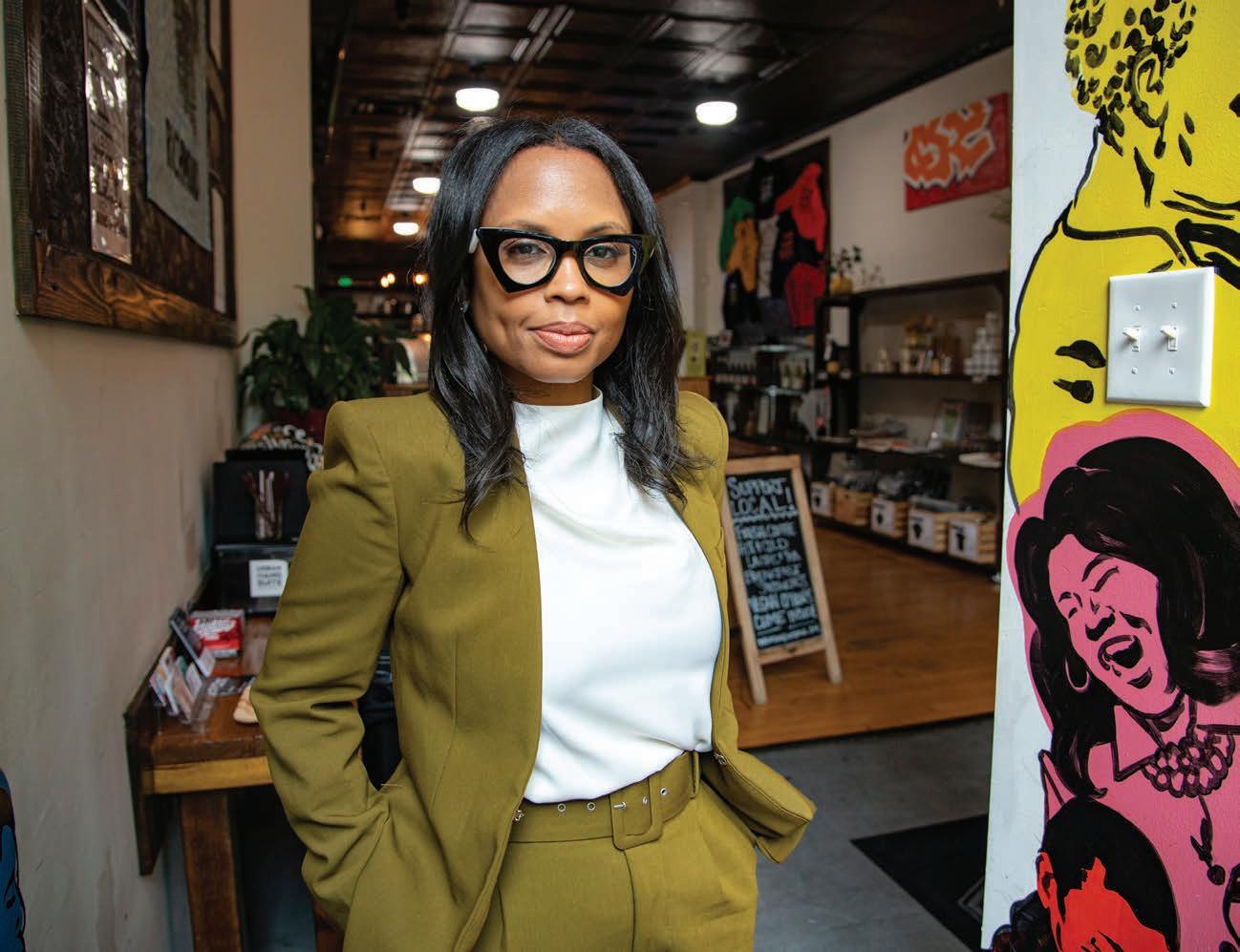
spearheaded a $5.6 million campaign to honor Abraham Peyton Skipwith, the first known Black homeowner of the Ward, by reestablishing his cottage displaced in 1958 by the Richmond-Petersburg Turnpike.
“We are in the thick of fundraising right now,” she says, adding that JXN has reached $2.5 million toward its goal. “We had the parcels donated by Maggie Walker Community Land Trust and RRHA [Richmond Redevelopment and Housing Authority], and we just finished the archaeological analysis and are now getting the space ready for the reconstruction. And we continue to do the research and peel back the layers on Abraham Skipwith and the origin story of Jackson Ward.”
As for Moon’s personal life, she’s an avowed “queer Black woman” with a loving wife, Janice Pritchett, and a dog named Benji. “I am really boring,” she claims. “I’m a homebody. I spend time between Richmond and D.C. and Richmond is where I’m my most authentic self.” –D.H.
37 style weekly Summer 2023
Trey Hartt, 36 Co-Founder and managing director, The Hive
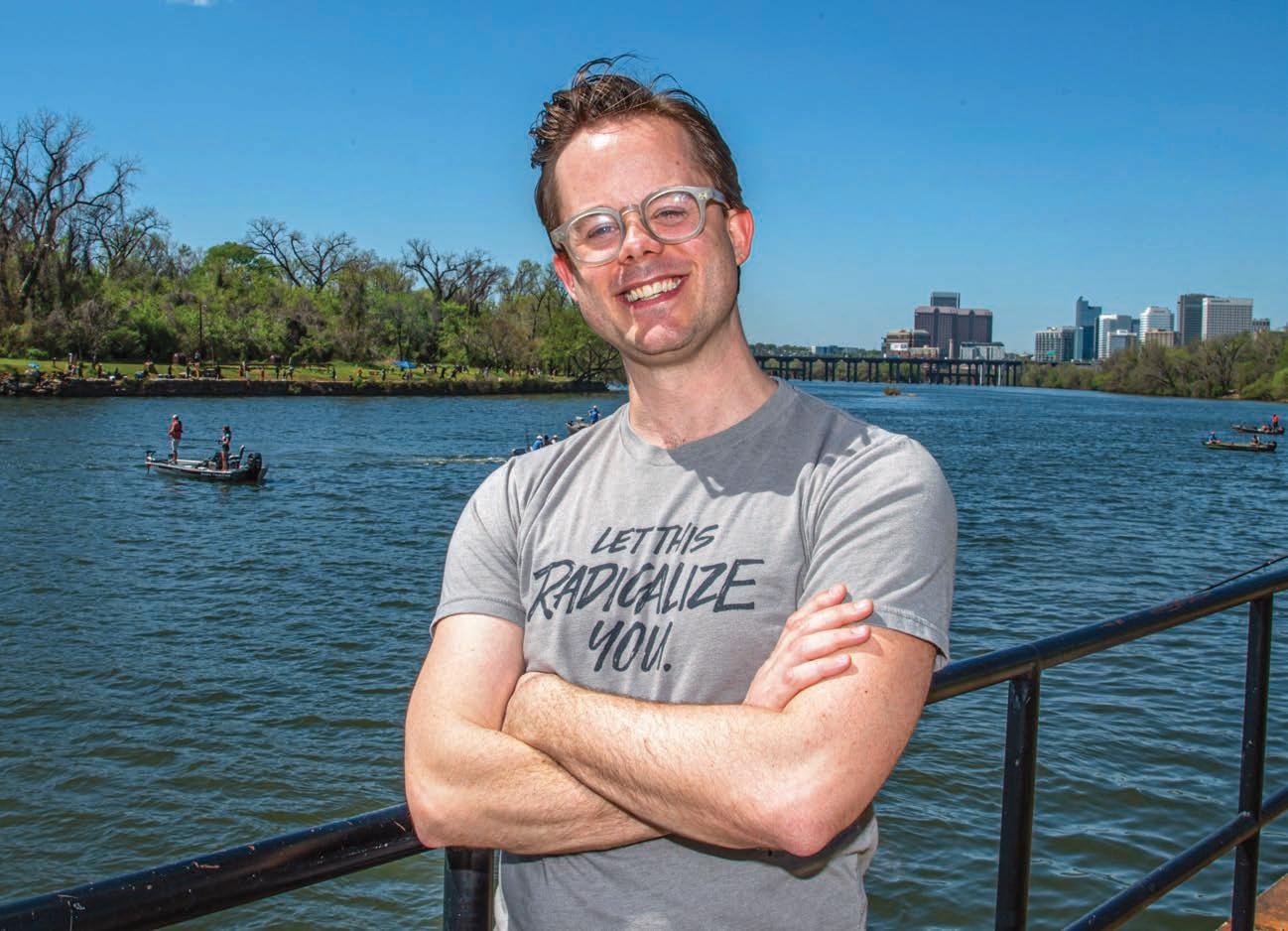
A leader in Richmond’s social justice community for nearly two decades, Trey Hartt’s work with the Conciliation Project, Art180, Performing Statistics and now The Hive has been focused on racial equity and healing for marginalized youth.
The son of an Air Force colonel, his entire childhood up until college saw him move every two years - mostly in the Deep South. “Entering a new community every few years has shaped my worldview today, for better and for worse.” As a theatre major at Virginia Commonwealth University, Hartt’s biggest ‘a-ha’ moment was meeting Professor Tawnya Pettiford-Wates.
“Dr. T. moved to Richmond the same year I did, and we started this company, The Conciliation Project,” he recounts. Still in operation, the Project promotes, through dramatic stage productions, an open dialogue about racism and oppression in America. “I was a wayward boy trying to find his way in the
world of theatre. That’s when I started to get involved in what I call social justice theatre. It just transformed my perspective on the world.”
As executive assistant to the executive director at Virginians For The Arts, Hartt was responsible for a statewide campaign called Arts Builds Communities, which publicized different organizations across Virginia which were catalysts in their cities. He also started volunteering for Alternate ROOTS, a venerable organization that supports artists. From there, he began working as development and program coordinator for the Virginia Center for Inclusive Communities, a nonprofit that works with schools, businesses, and communities to address prejudices, in all forms. “That’s when I learned to implement projects,” he says.
With Art 180, and his longtime collaborator Gina Lyles, he co-founded Performing Statistics, a cultural organizing project that works with incarcerated youth to imagine what a world without prison would look like. Just recently, he spun it off into The Hive, which models a community-based alternative to incarceration. The Hive is currently in the early
stages of planning for a multi-acre facility in Richmond. Performing Statistics is now based in Philadelphia, so his full attention is on The Hive, which he calls an “extension of himself” and “the culmination of so much of what I’ve done with my life.”
Hartt has difficulty separating his professional and volunteer time. “Work is work,” he says. “My volunteer work is more on the art side.” During the pandemic, many smaller arts organizations were struggling to get funding so he “helped to found the Southern Community Cultural Alliance, a network of small to mid-sized arts organizations that were anchors in their community but didn’t have the resources to pull in national funding.”
Hartt has been with his husband, Jon Davidow, for 15 years (they have two “infamous cats,” Fartbox and Gail). The activist says that his goal is “to live a purpose-driven life. I’m invested in making our community better by speaking the truth about racial justice in the city and being unafraid of taking bold innovative steps to change ... not just doing t he same things the same way we’ve been doing them.” –D.H.
Summer 2023 style weekly 38
Desirée Dabney, 30
Head of musical theatre and assistant professor, VCUarts; executive director, Theatre Diva Productions
When Style profiled Desirée Dabney last year, she was broadening out from her job as a middle school arts teacher to take a more activist role making structural changes in education. Soon after, she was handed a prime opportunity to have a direct impact.

“I got an email from VCU over the summer [of 2022] and it was a shocking email,” says Dabney. She was offered a faculty position and started in August as the head of musical theatre. “My goal was always to change programs, increase diversity and inclusion especially in higher education. When the oppor-
tunity was with VCU, I was like, ‘OK, yeah!’”
The actor, director, and professor has been going full-speed ever since, augmenting her new administrative and educational duties with directing gigs at several local companies. She directed three different casts of youngsters for “Annie Jr.” at Cadence for the holidays, went from that to an astounding “How Black Mothers Say I Love You” at Richmond Triangle Players (RTP), to “She Persisted” at Virginia Rep, then “Rent” in April, her directing debut at VCUarts Theatre.
“I did the math and I’ve been in rehearsals for eight straight months,” says Dabney. “I was feeling extremely tired and I’m never tired. Then I figured out, ‘Oh, this is why.’ But I would do it again in a heartbeat.” Adding to her responsibilities has been work on the executive board for “Yes, And!” theater
company and the artistic committee for RTP.
Dabney says her work now has many fundamental similarities to her previous job. “Middle schoolers and college students are both in a transitional age where they are figuring out who they are,” she says. “So reaching them is about establishing a human connection and building trust. I don’t bring [VCU students] juice boxes and Takis, but we may go to the Chili’s and talk about life.”
She’s found that reverberations from the pandemic continue in her new job.
“A lot of these students jumped from junior year in high school straight into college, at least socially, and that’s huge,” Dabney says. “We’re figuring out how to give them what they need and half of it is backtracking a little because they have missed so much core stuff. We’ve had to accept that and keep on moving.” – D.T.
39 style weekly Summer 2023








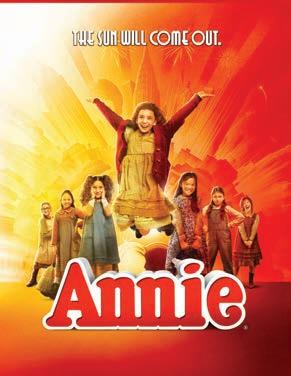


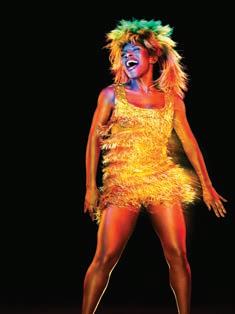


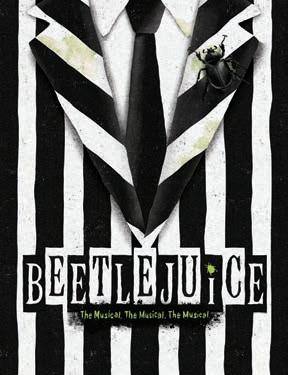




BROADWAY RICHMOND IN TICKET PACKAGES ON SALE NOW! ©Disney OCTOBER 11-22, 2023 NOVEMBER 7-12, 2023 ©2022 Tribune Content Agency, LLC. Photos by Matthew Murphy for MurphyMade. JANUARY 16-21, 2024 HARPER LEE’S TO KILL A MOCKINGBIRD A new play by AARON SORKIN Directed by BARTLETT SHER FEB. 27-MAR. 3, 2024 THE DAILY BEAST THE TINA TURNER MUSICAL Photo: Pari Dukovic APRIL 2-7, 2024 JUNE 4-9, 2024 & © 1957, 2022 Dr. Seuss Enterprises, LP. ADD TO ANY PACKAGE! DECEMBER 12-17, 2023 BROADWAYINRICHMOND.COM EXPLORE EXCLUSIVE SUBSCRIBER BENEFITS AND BUY NOW AT 2023 - 2024 SEASON
